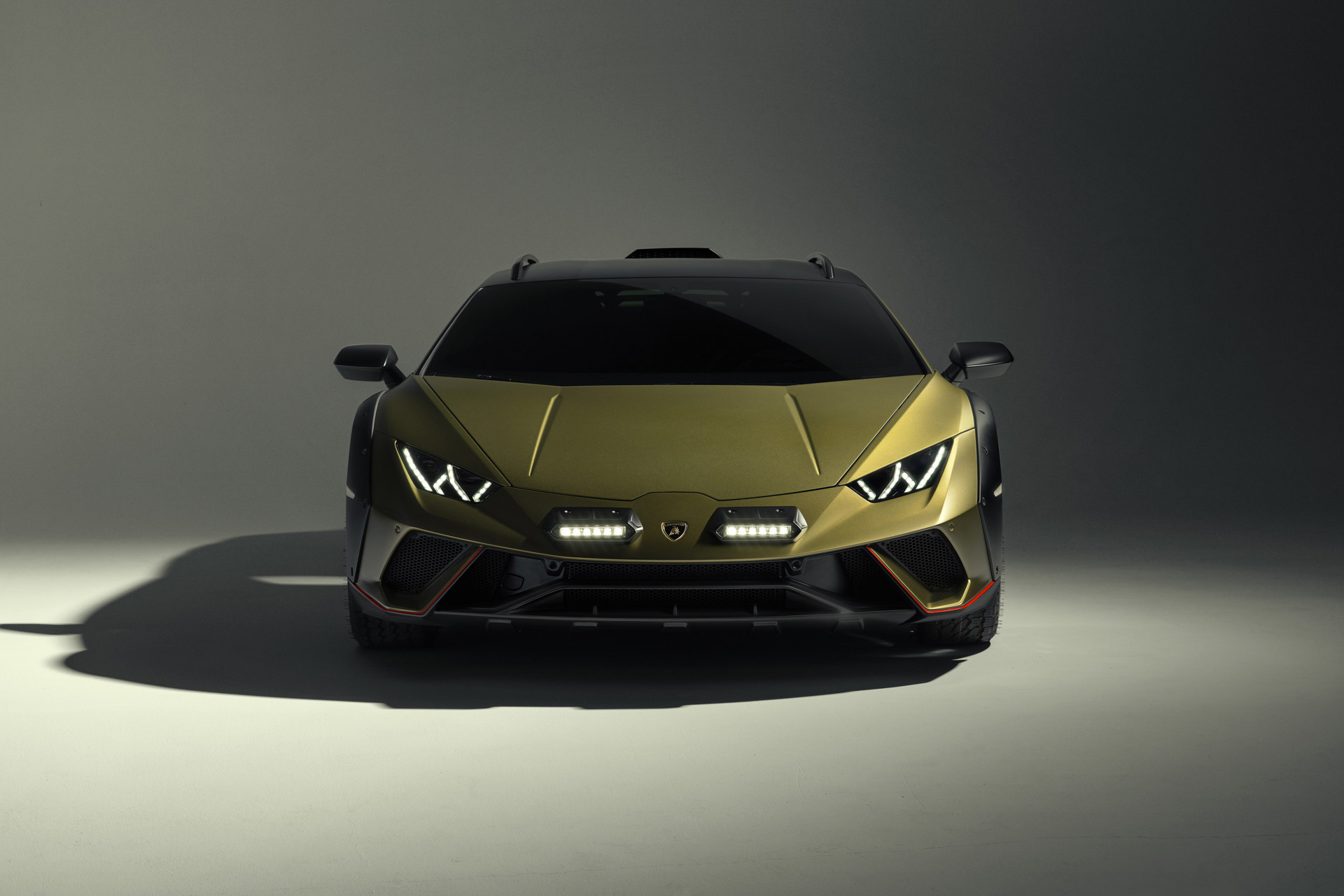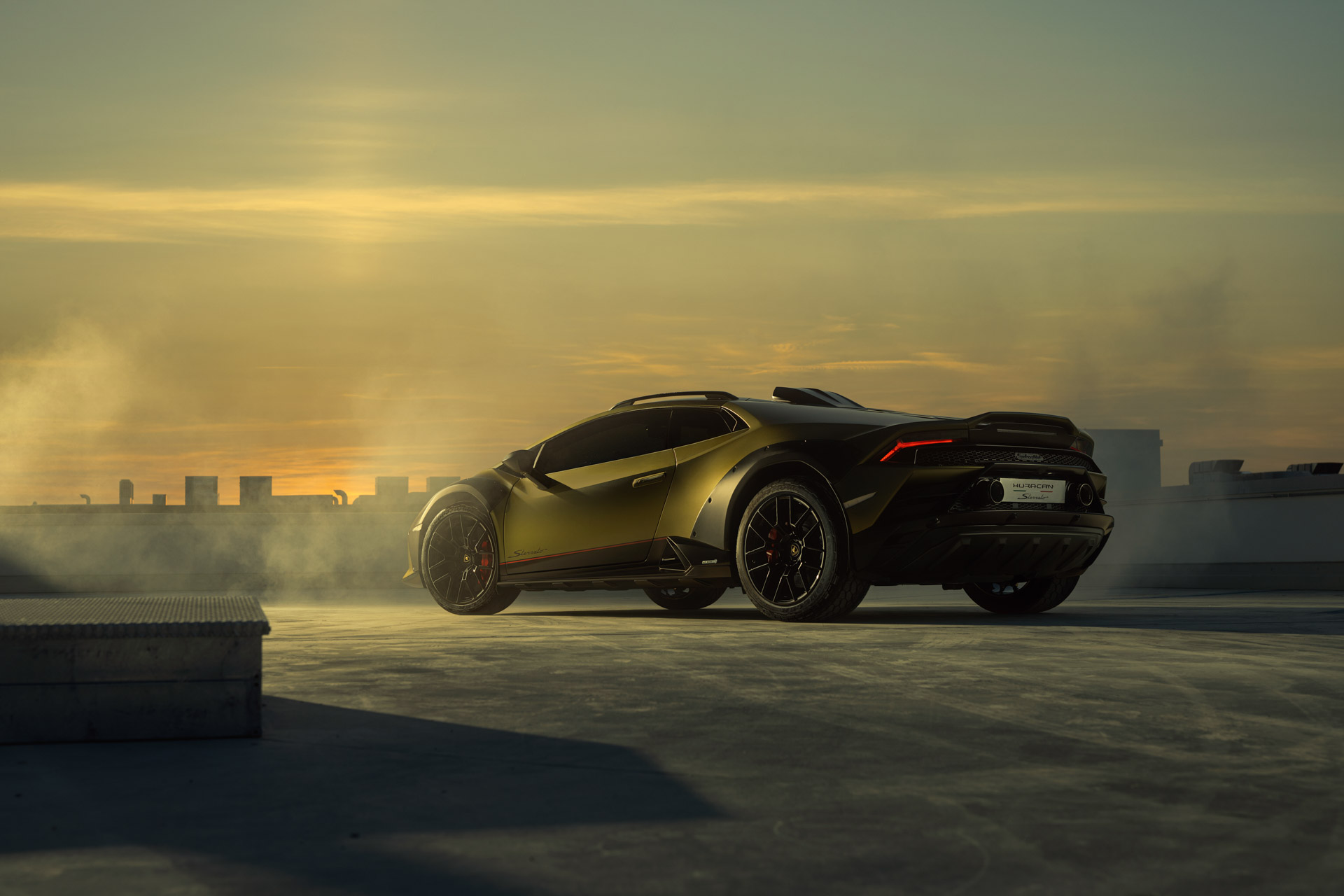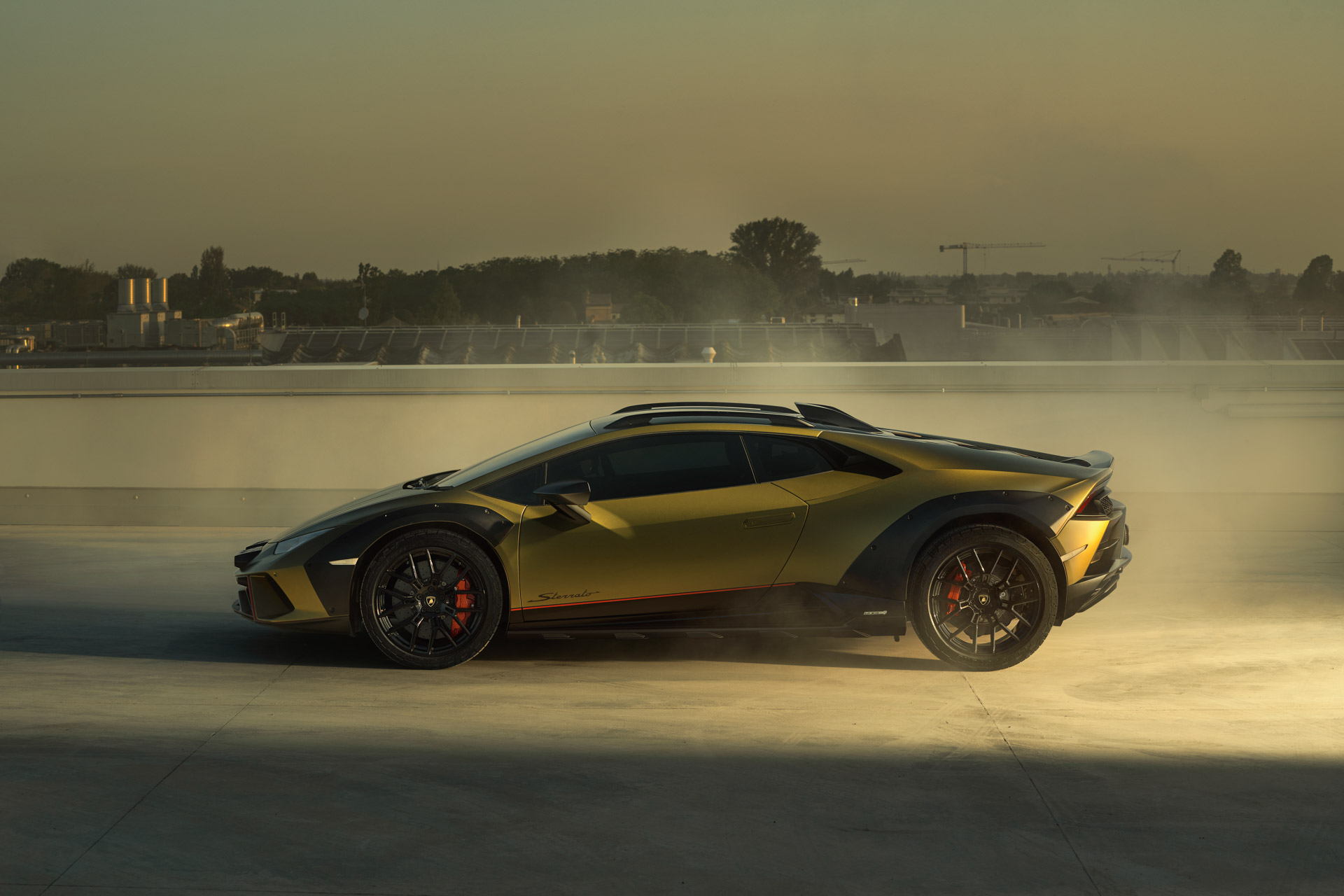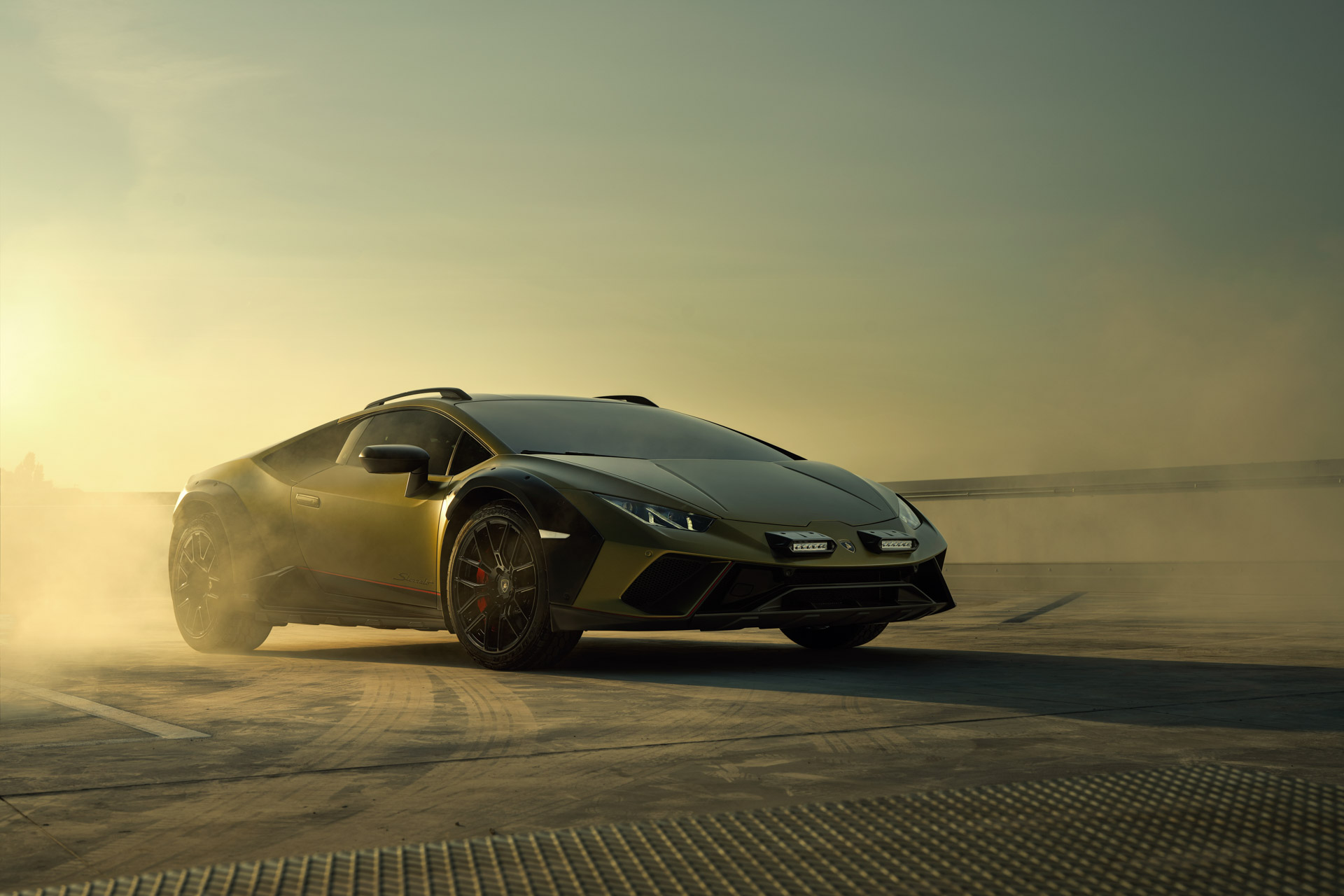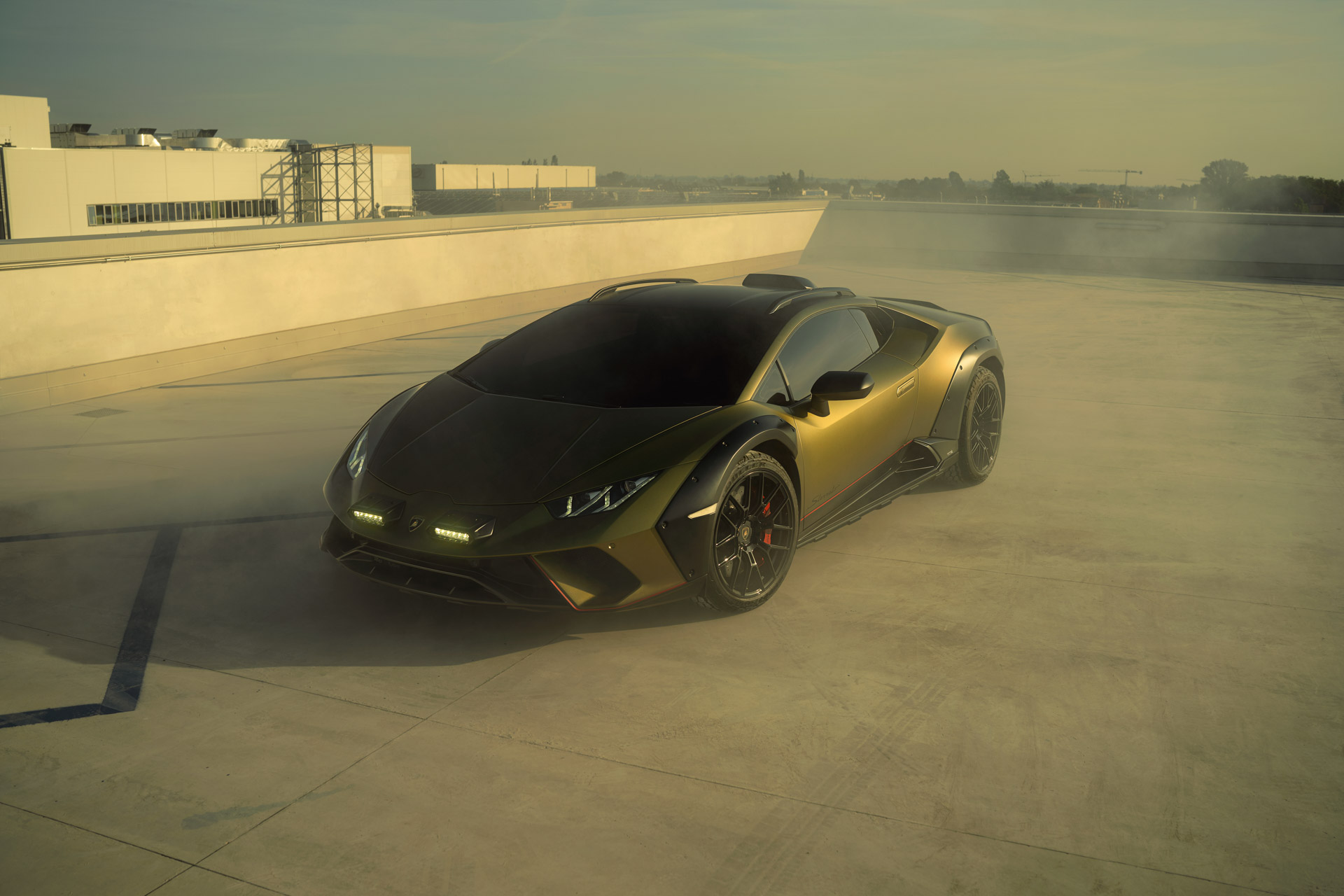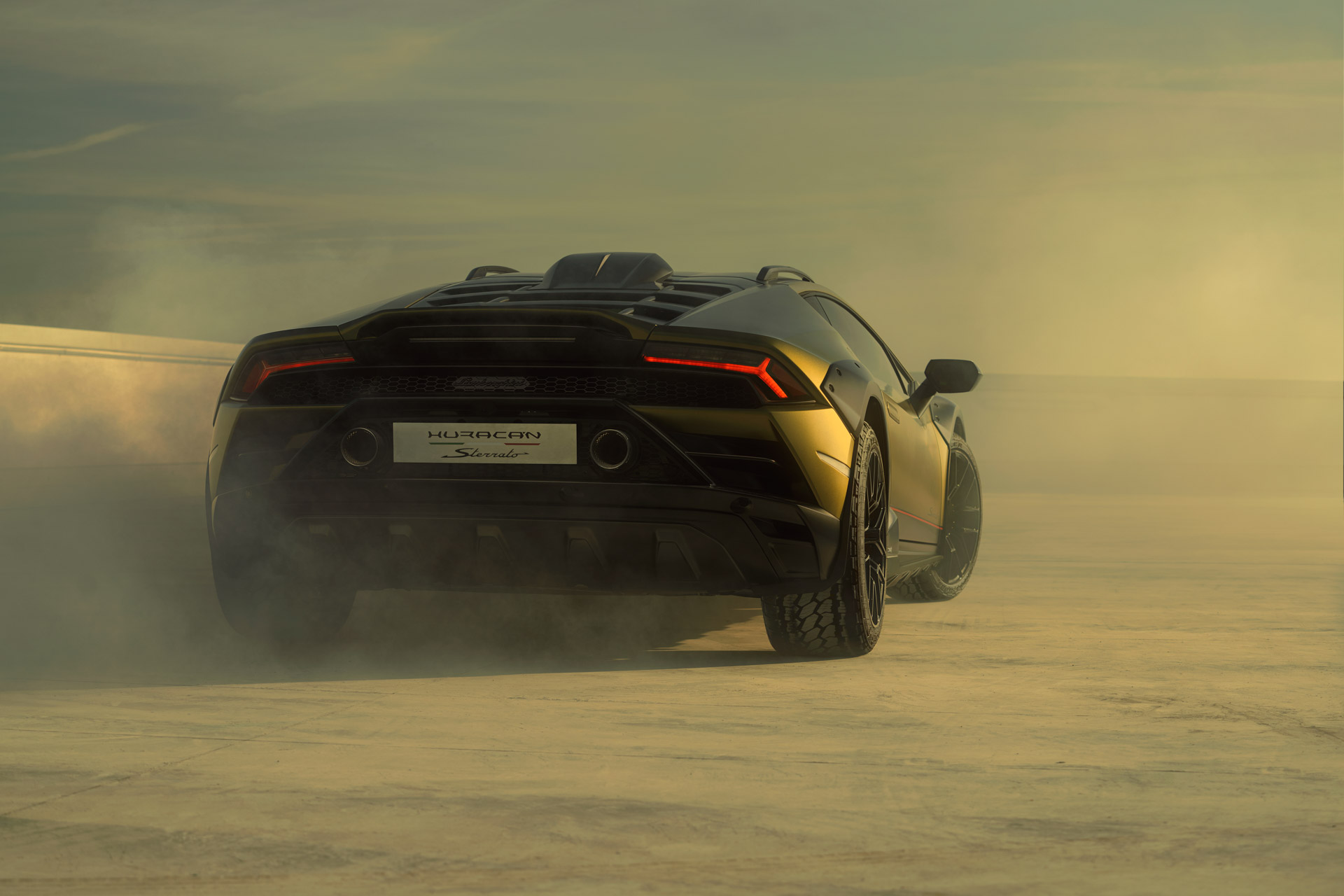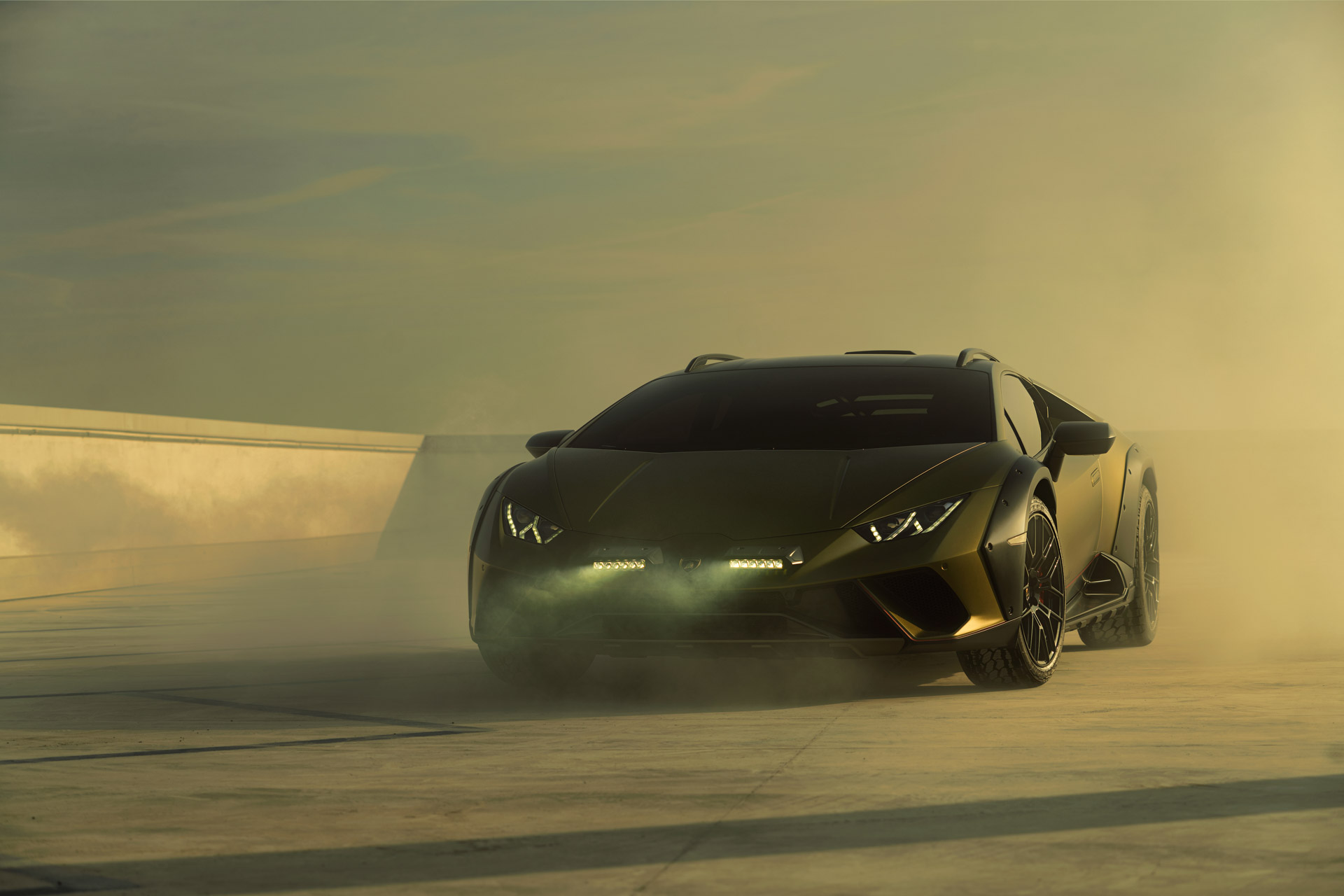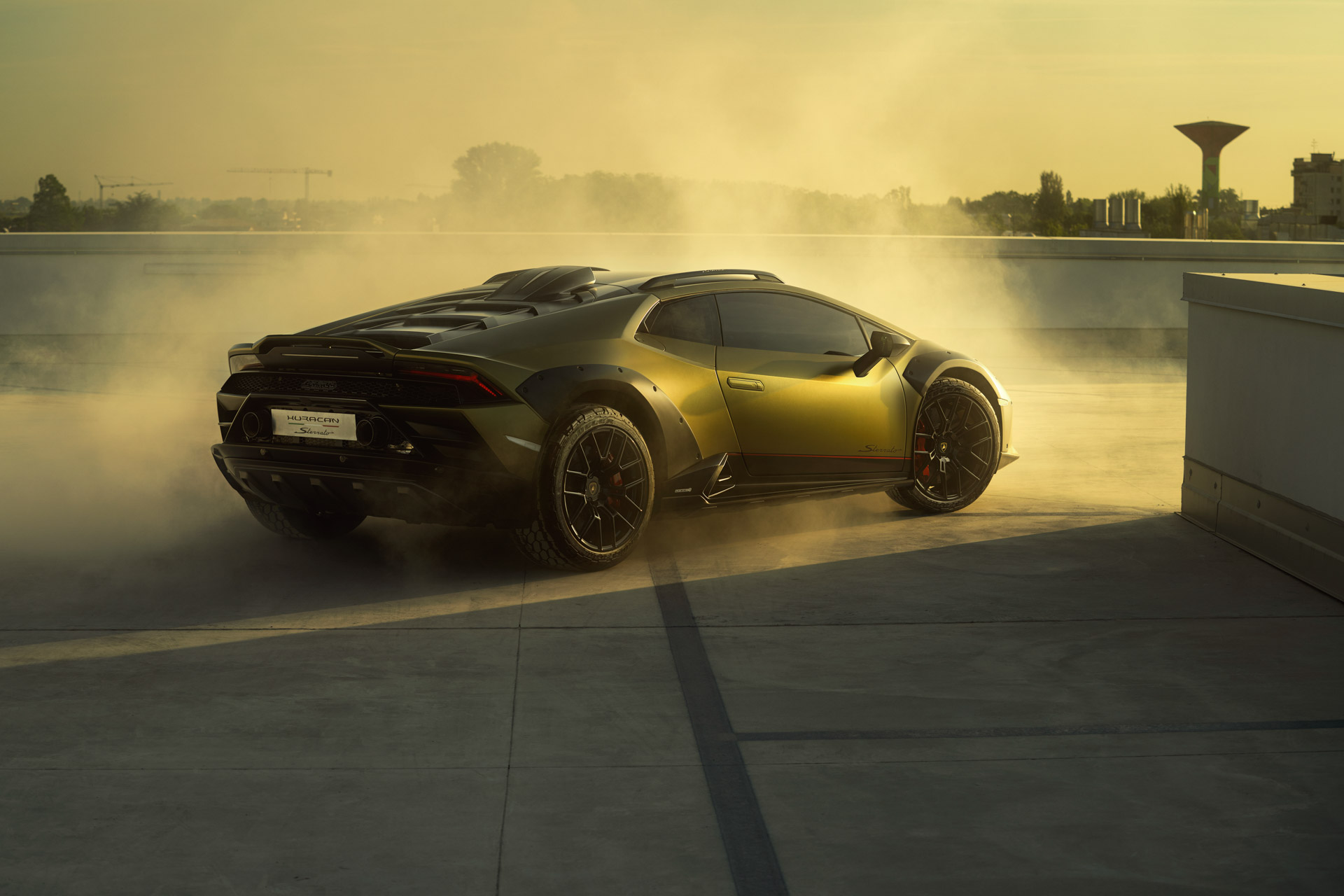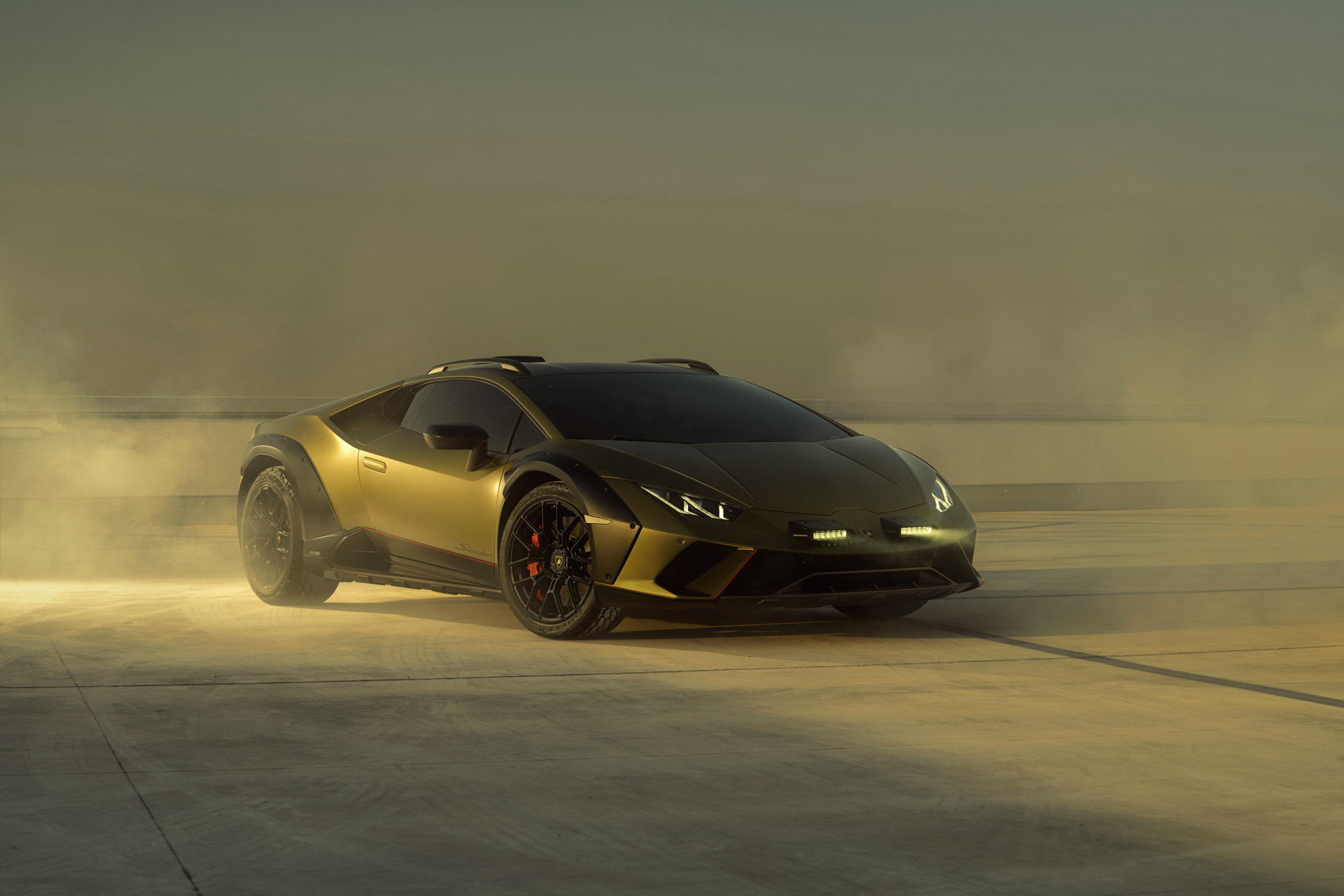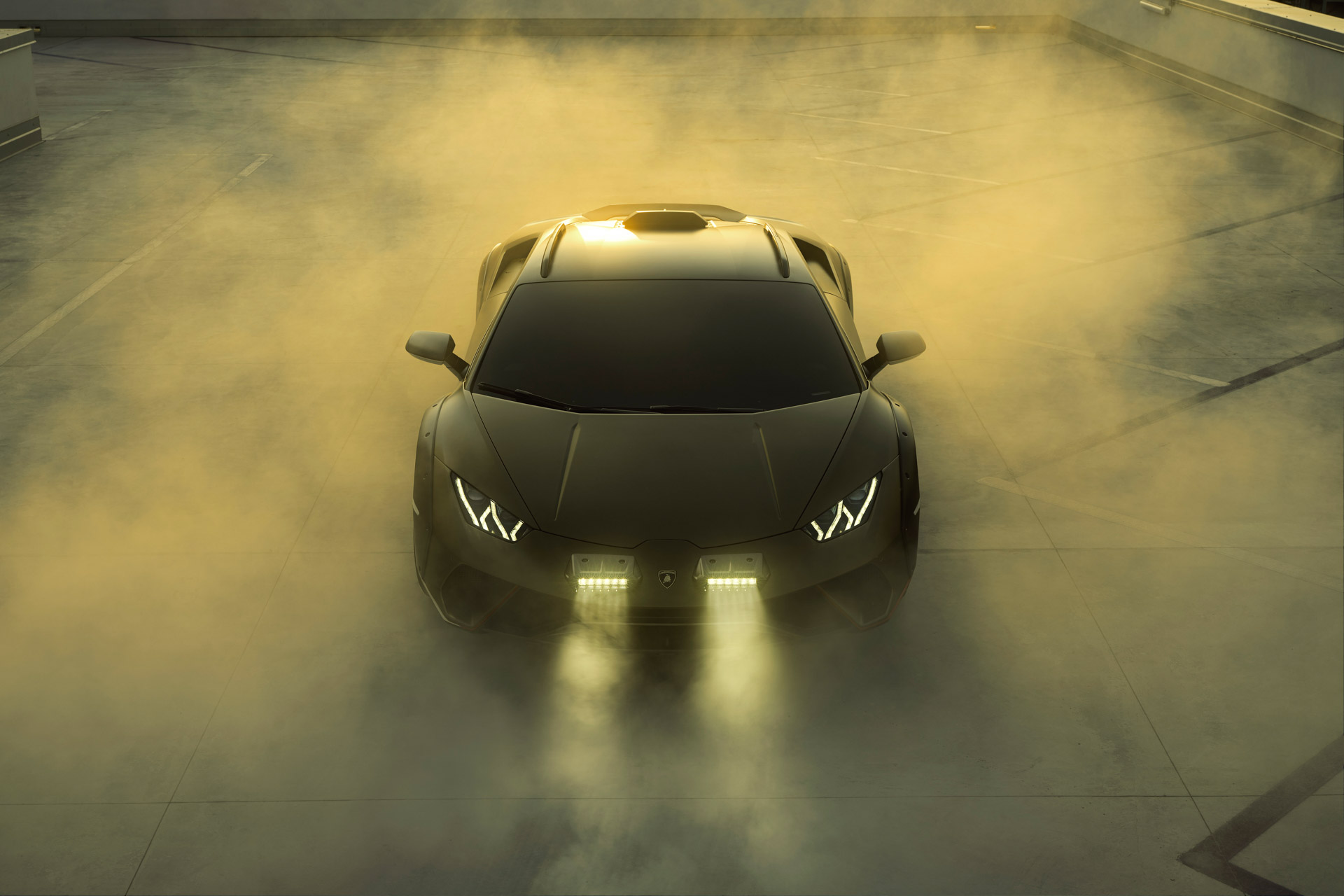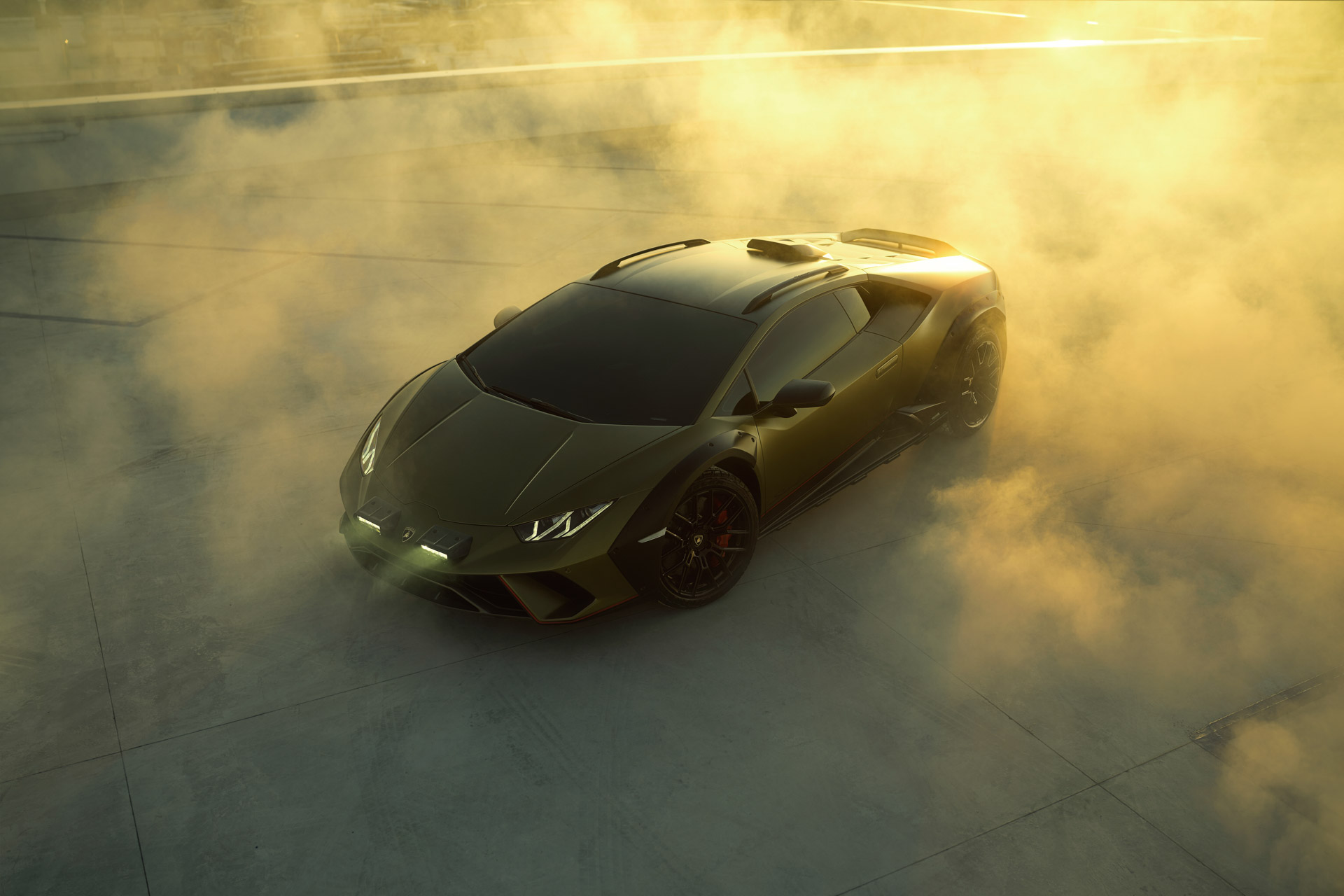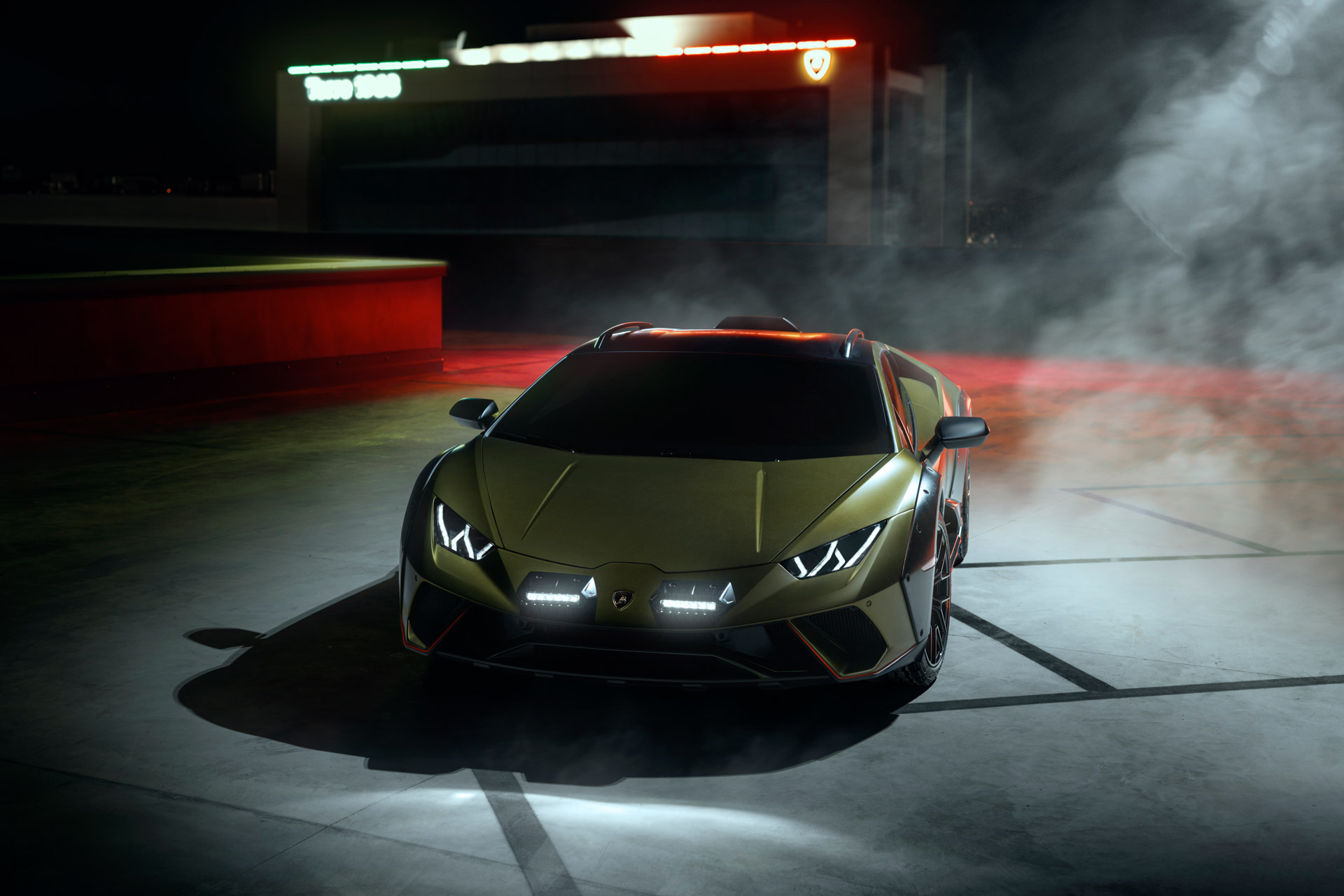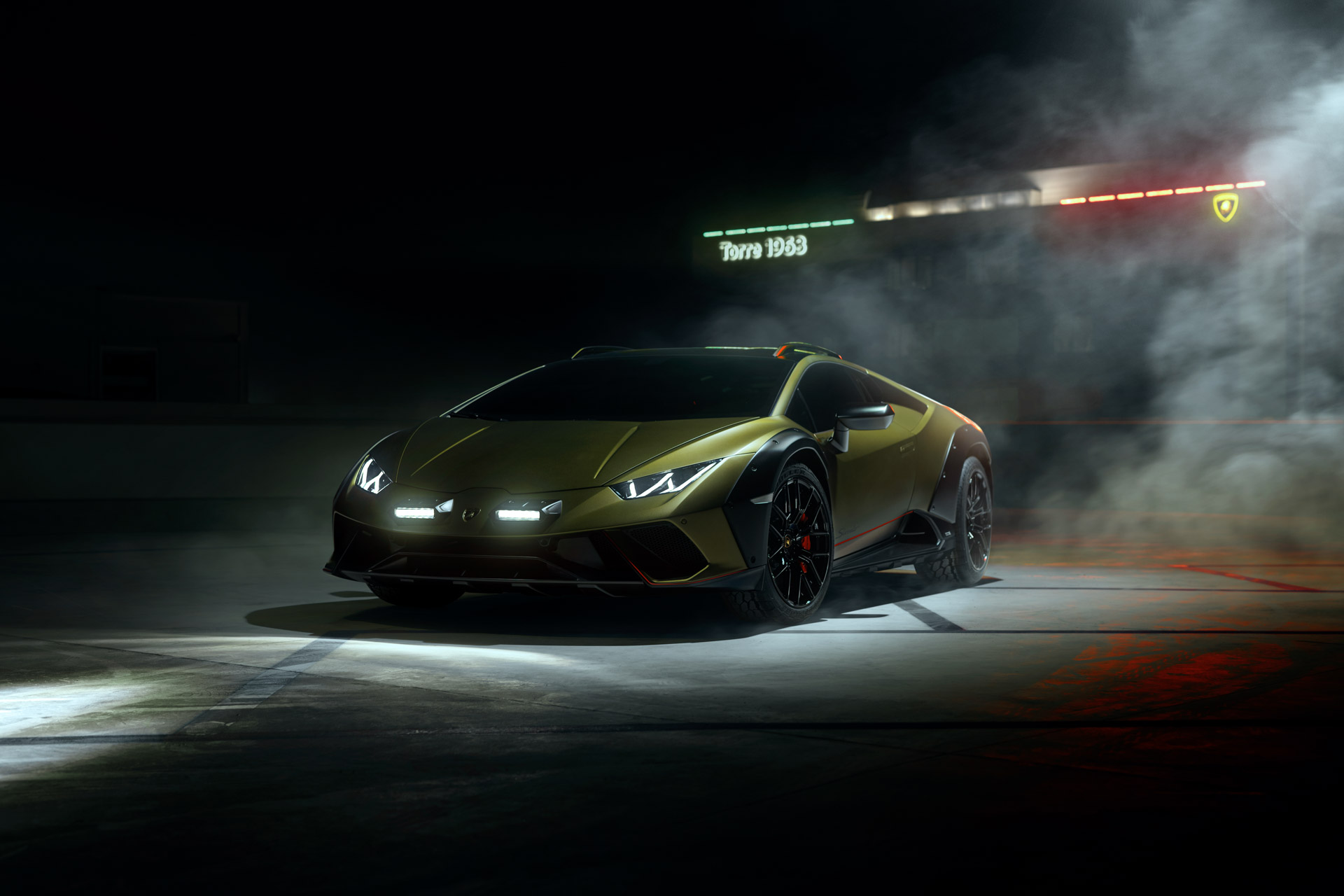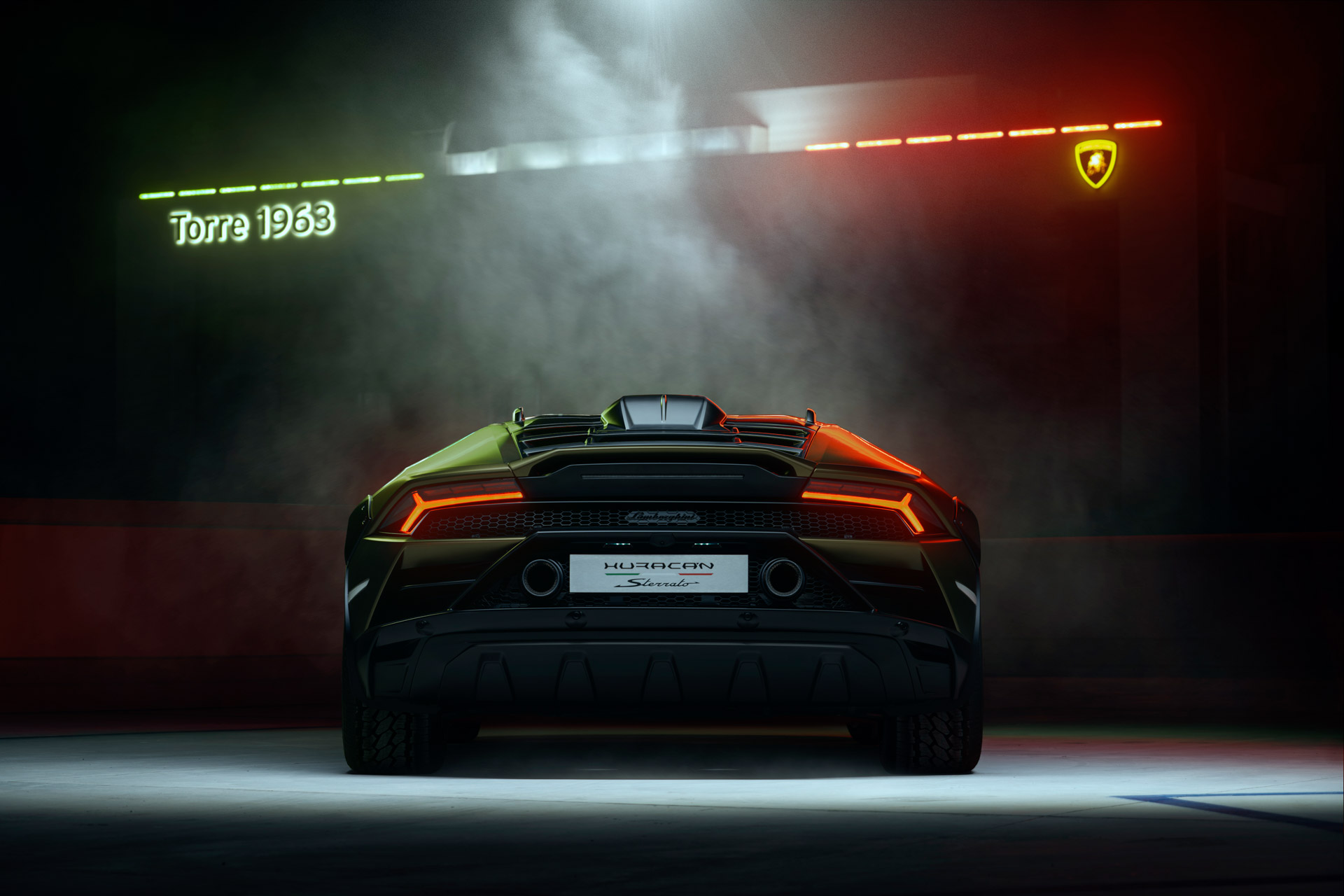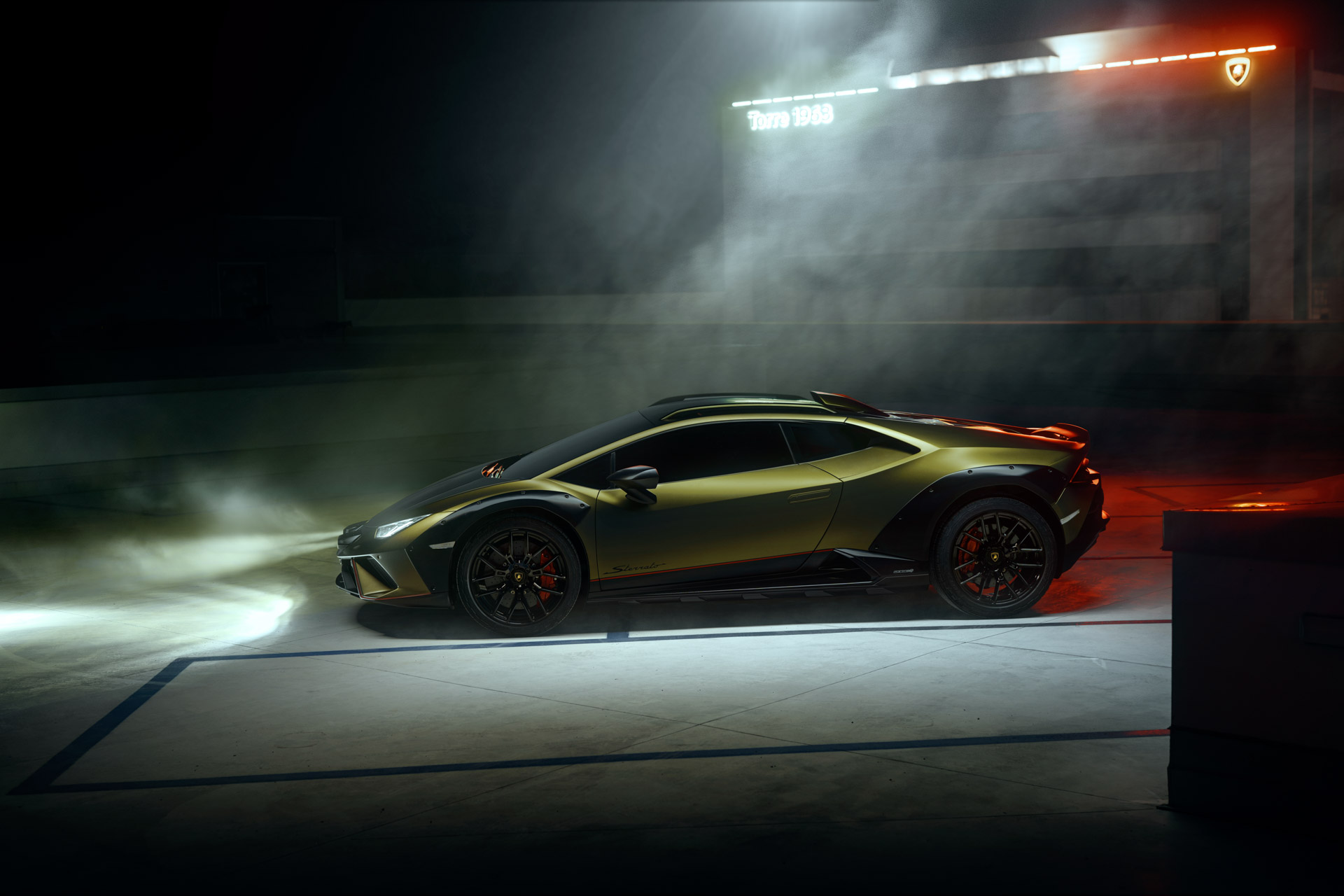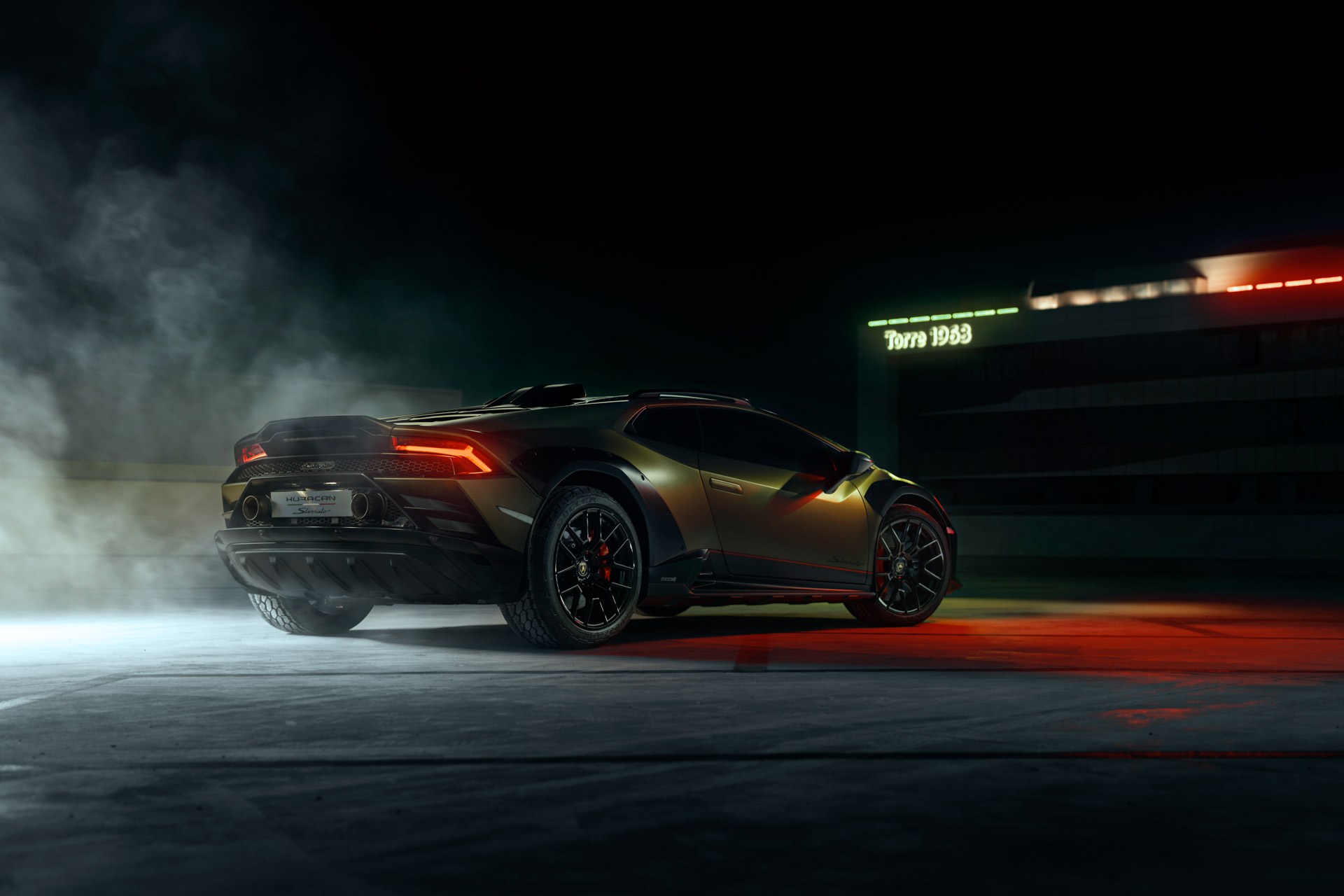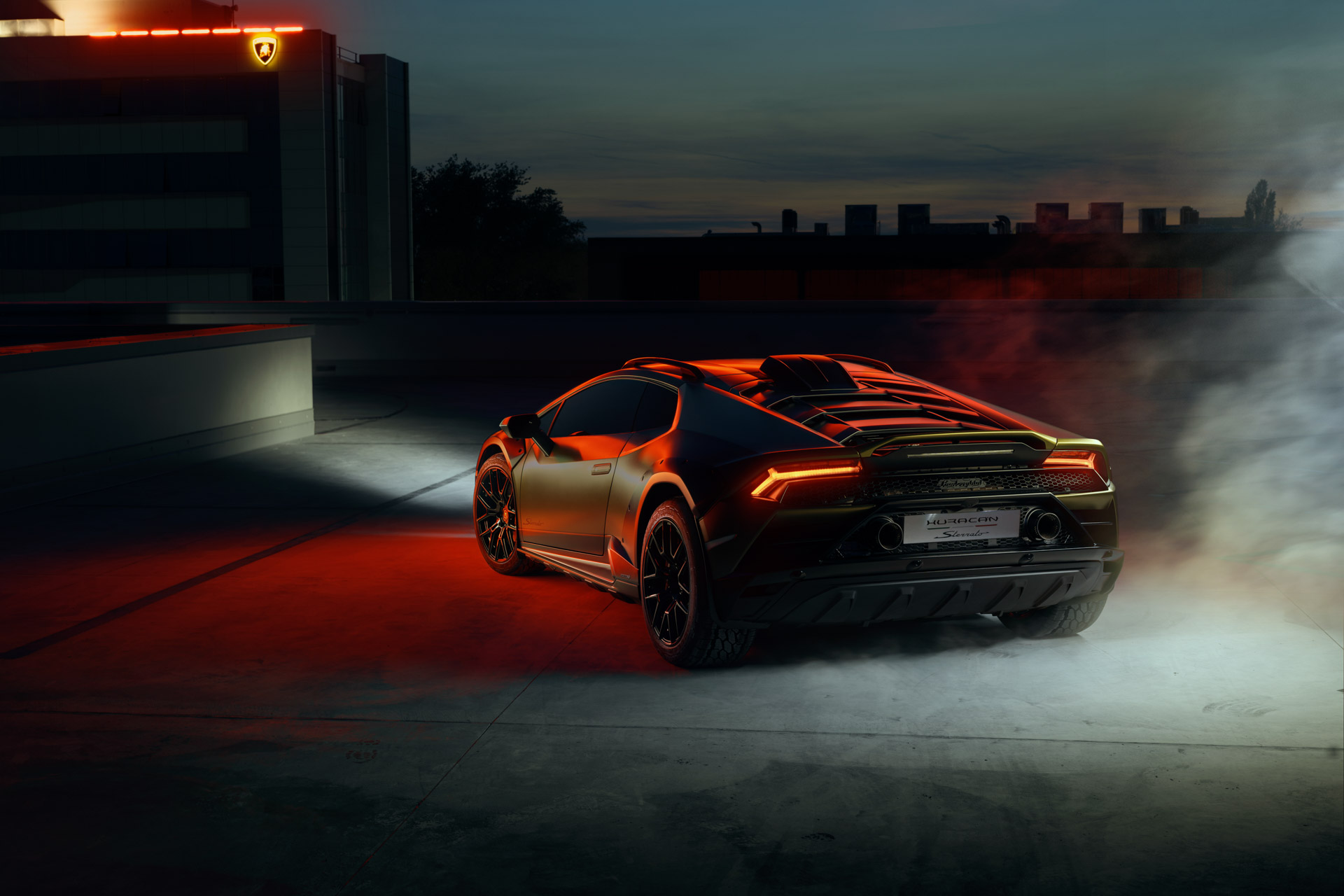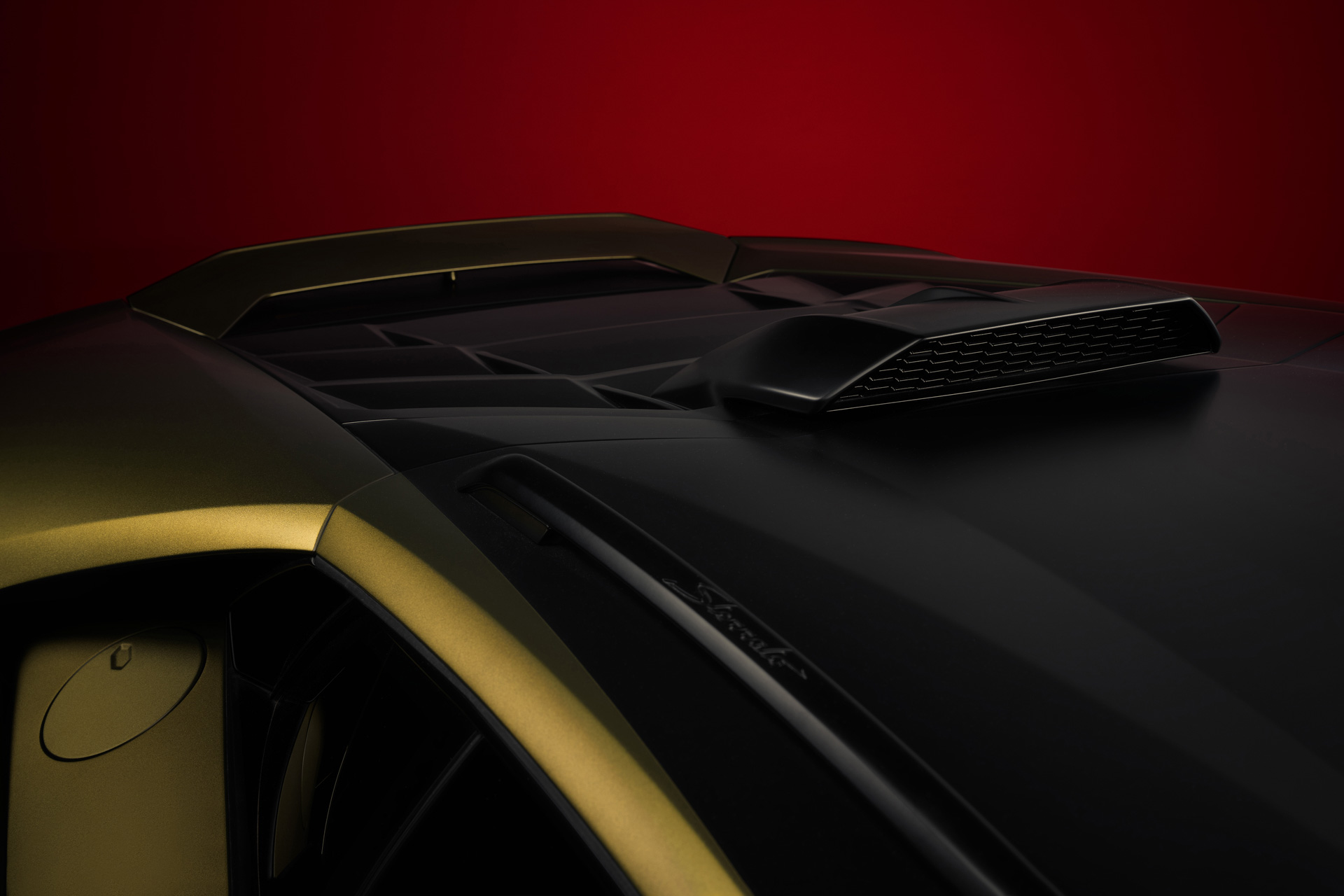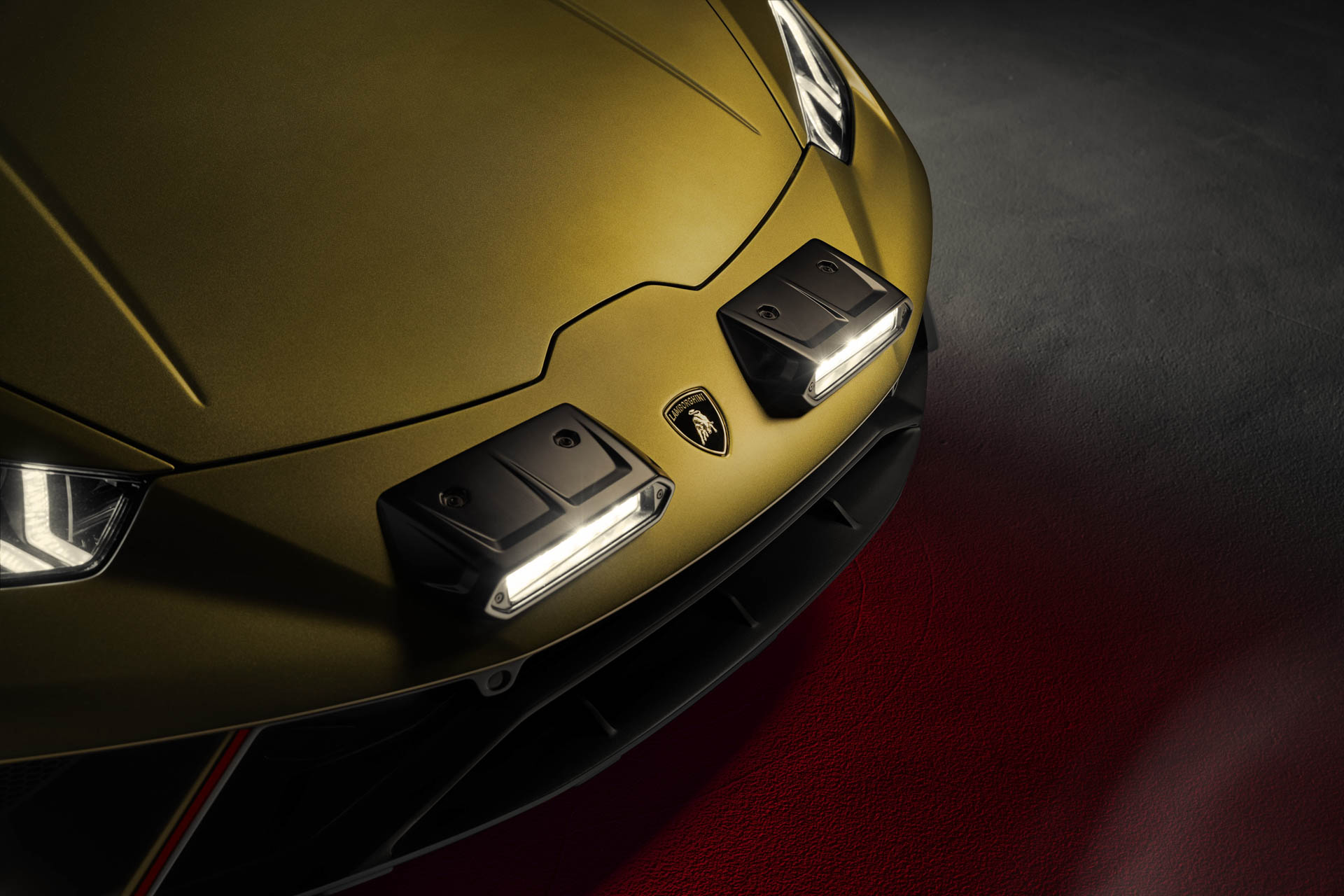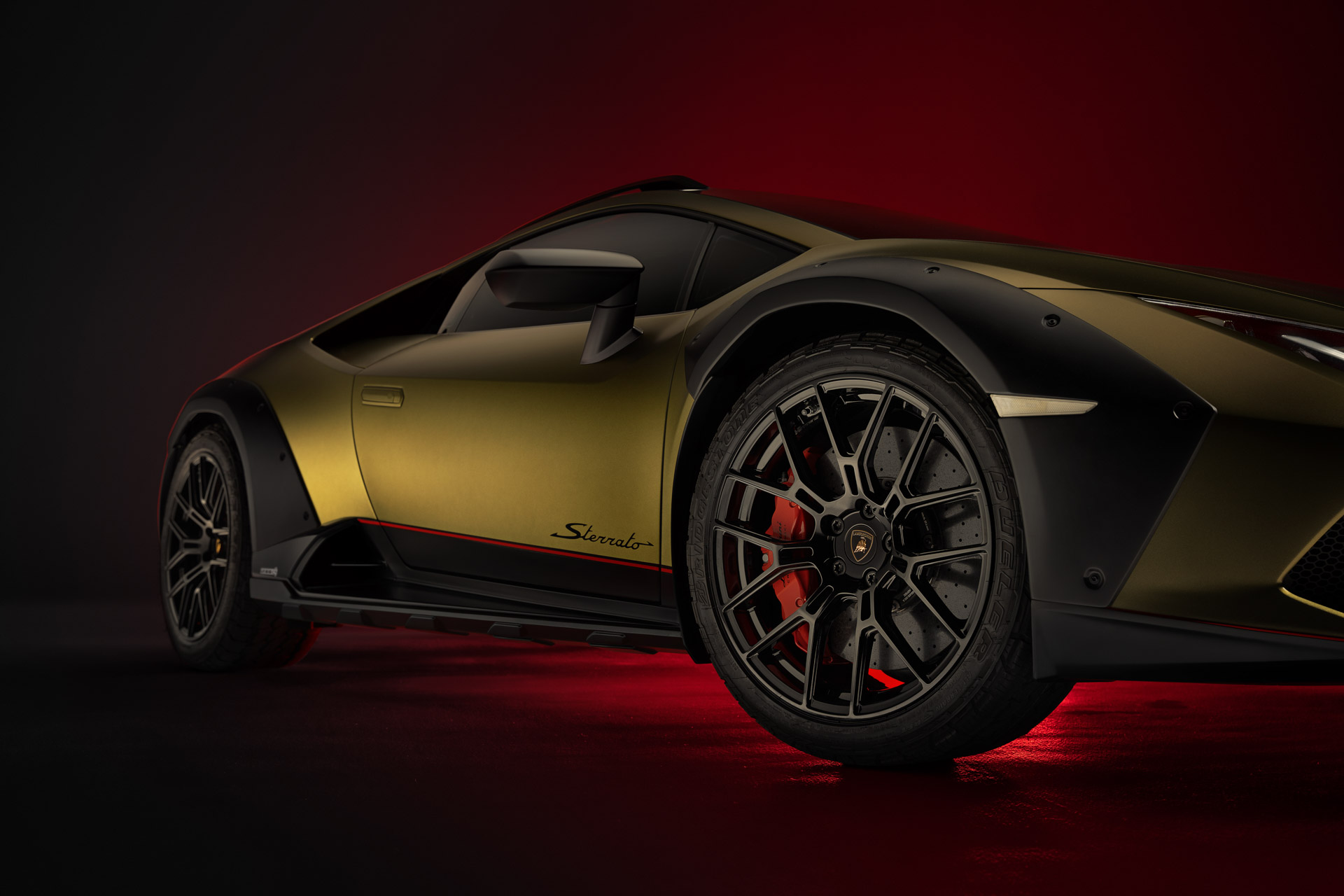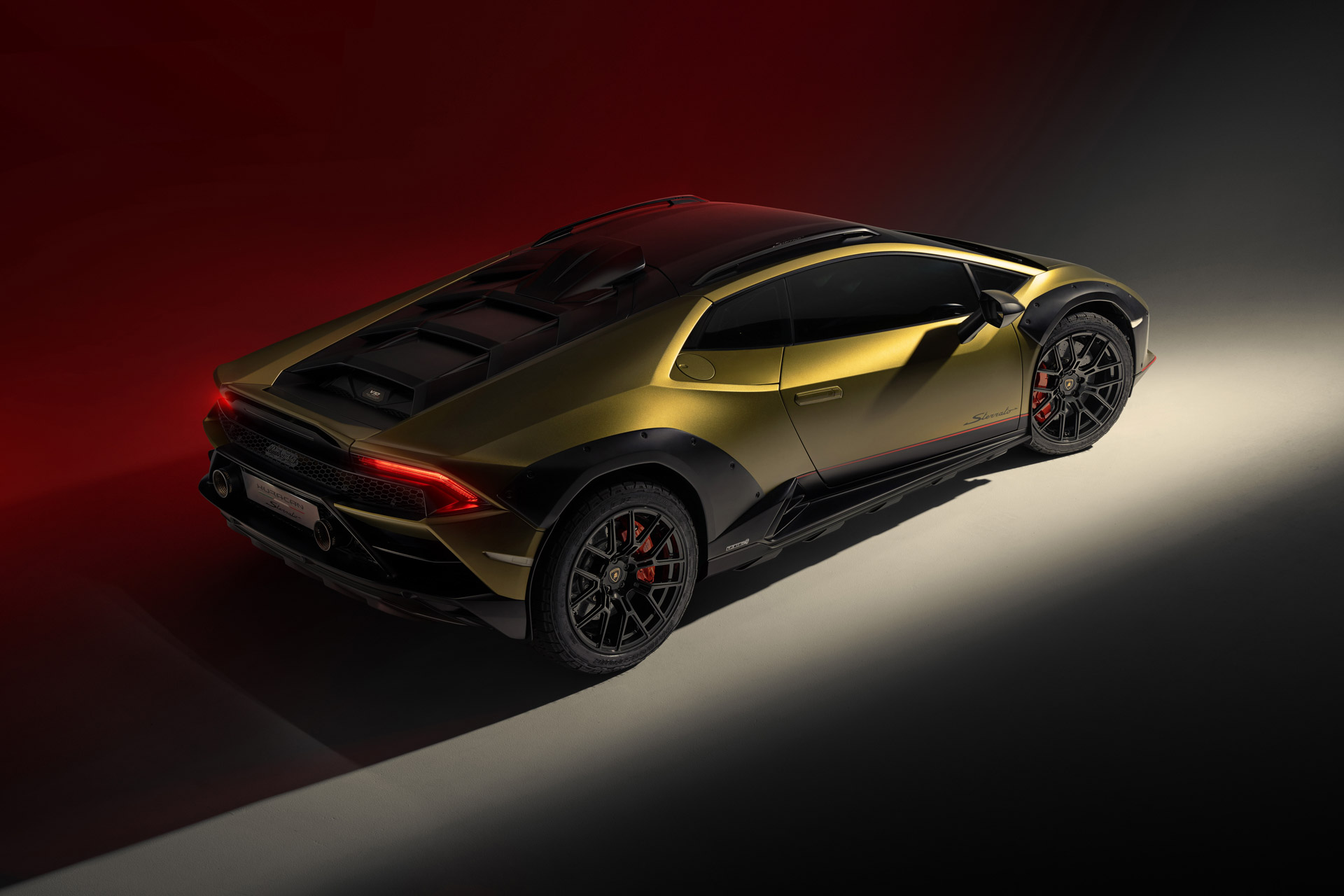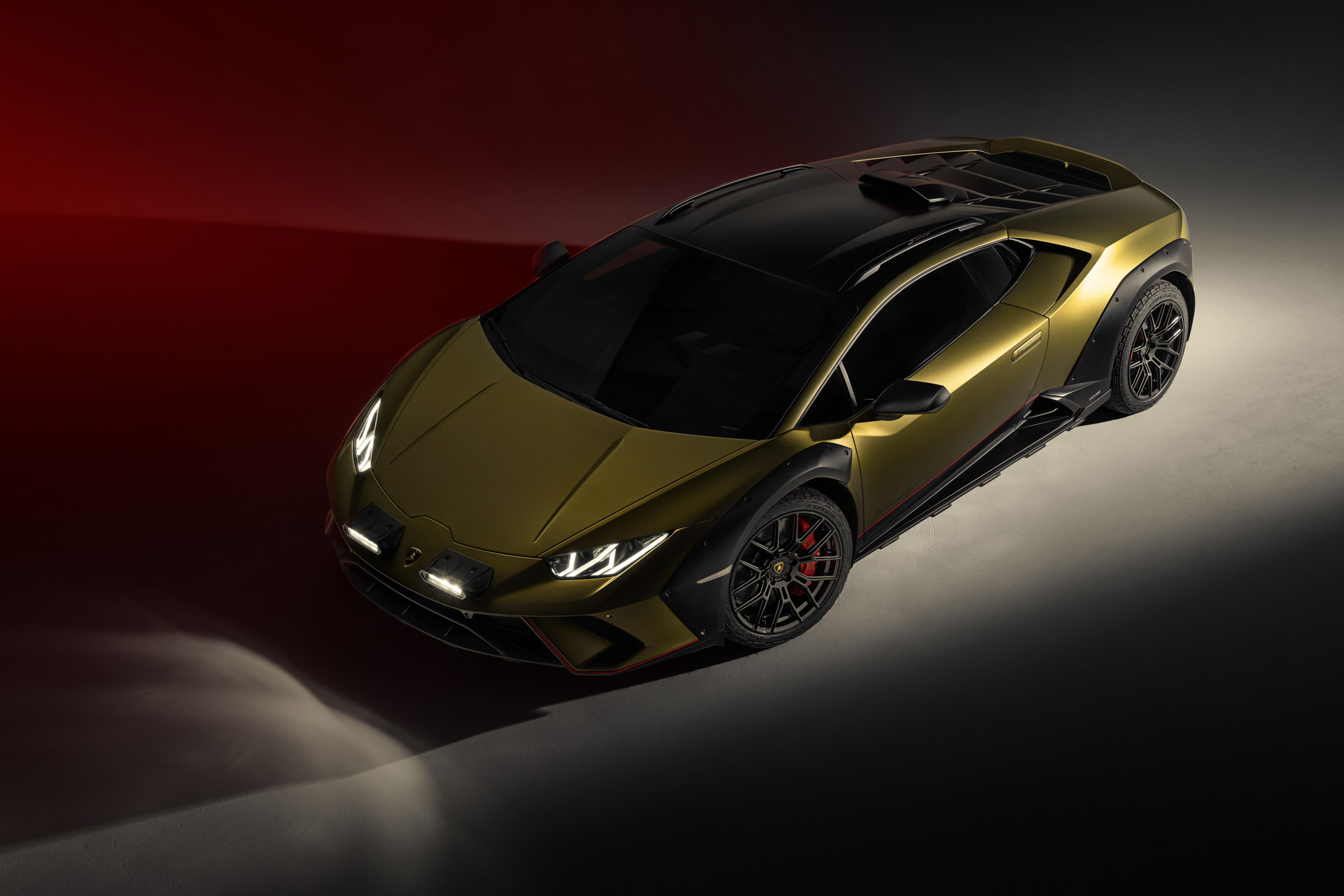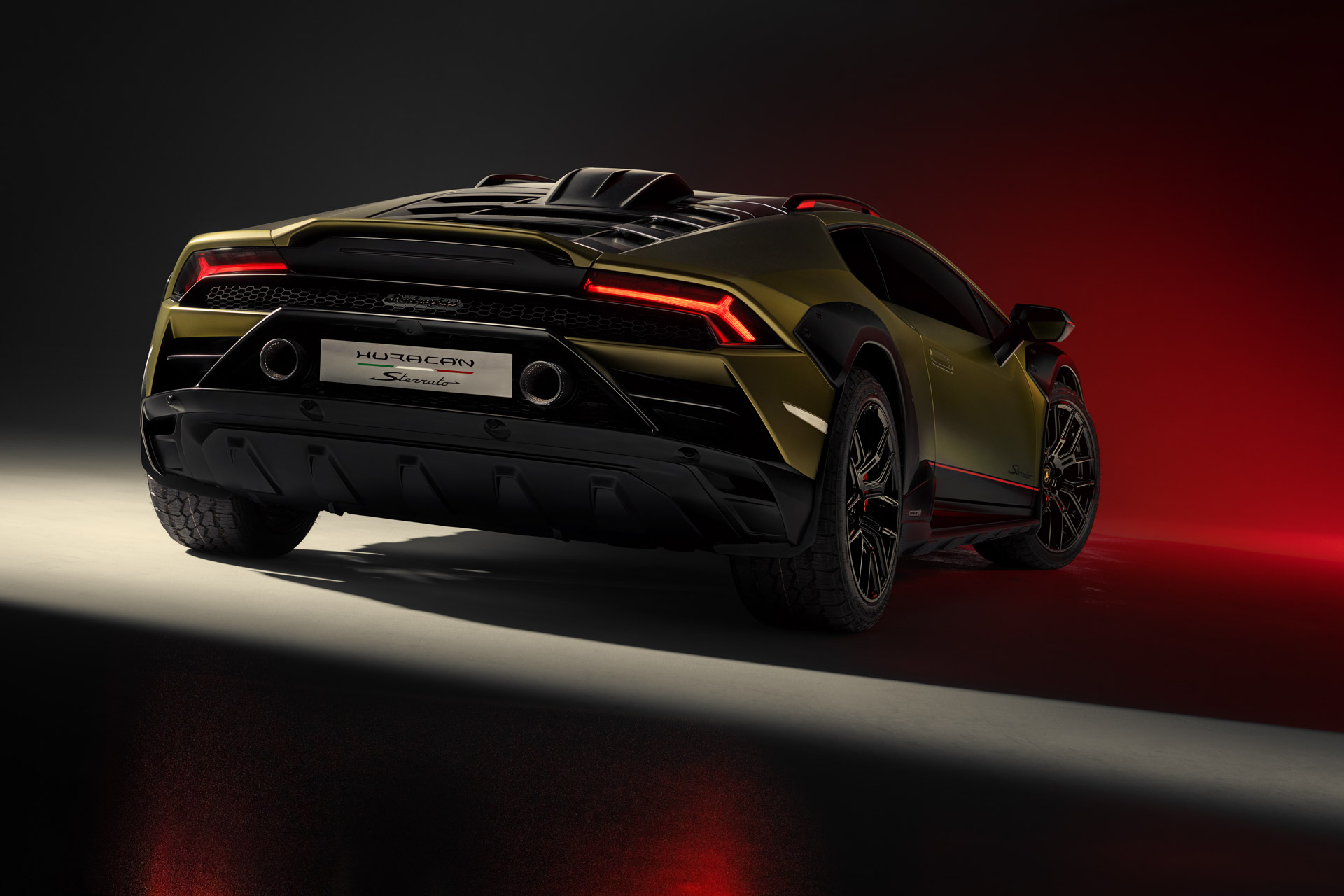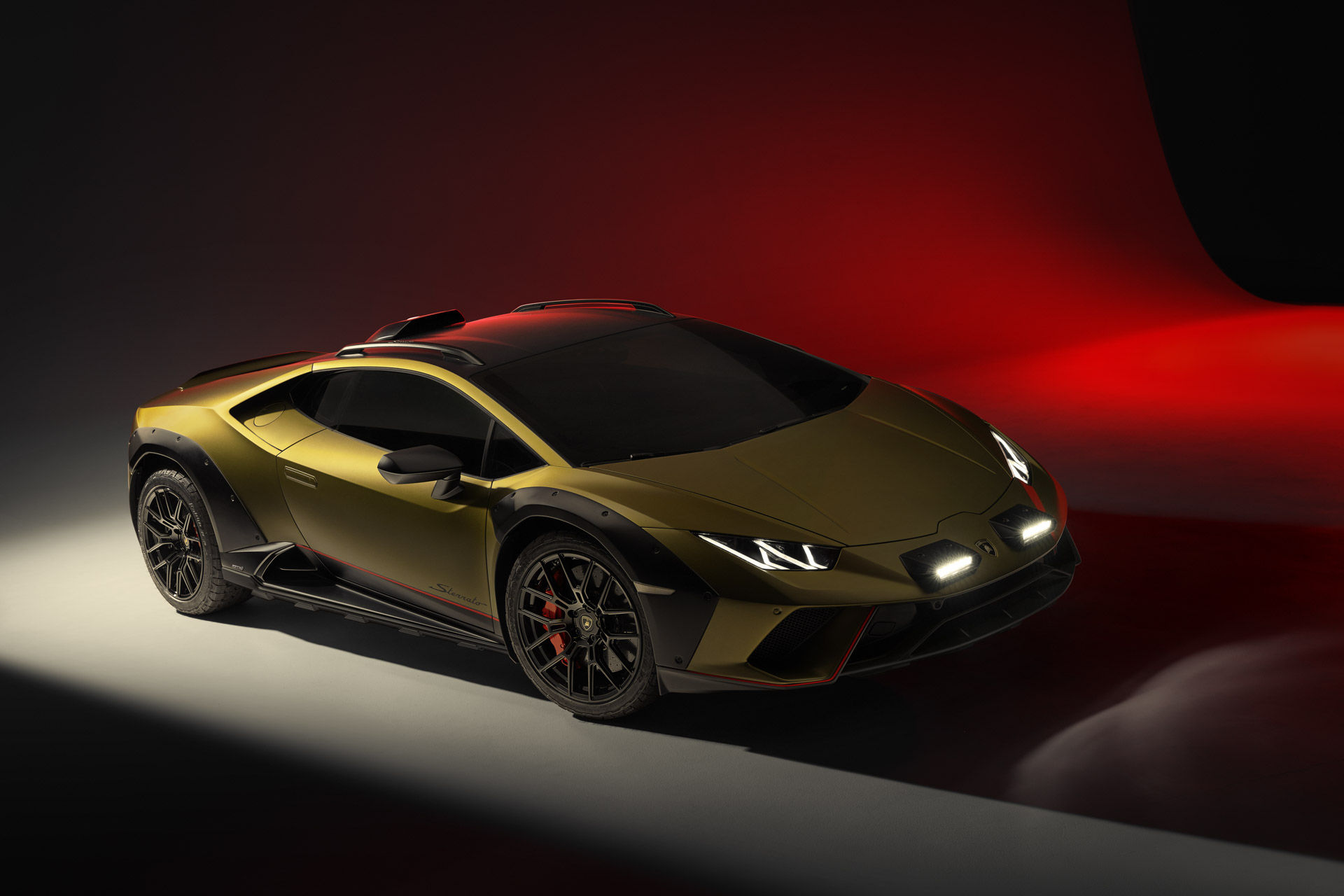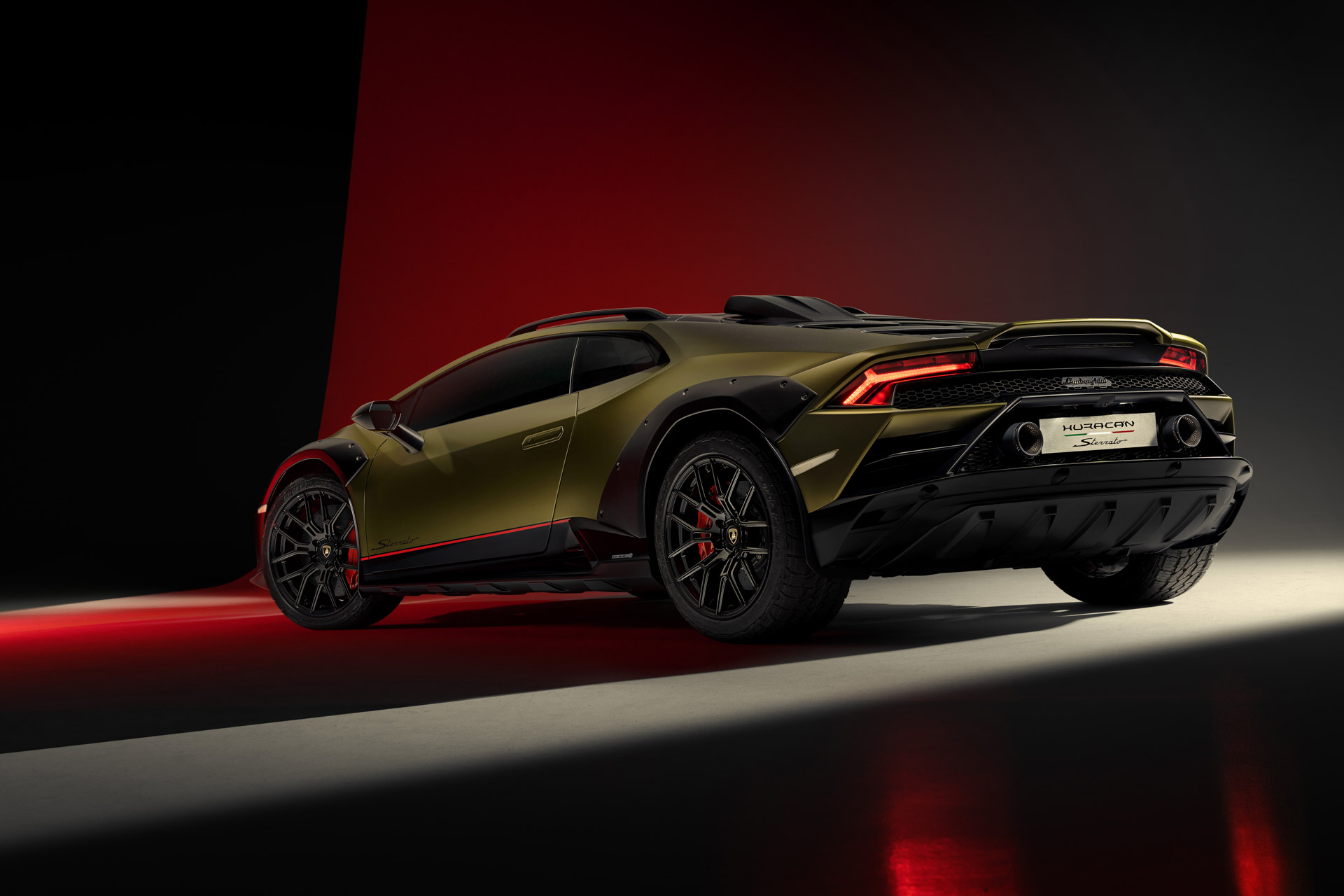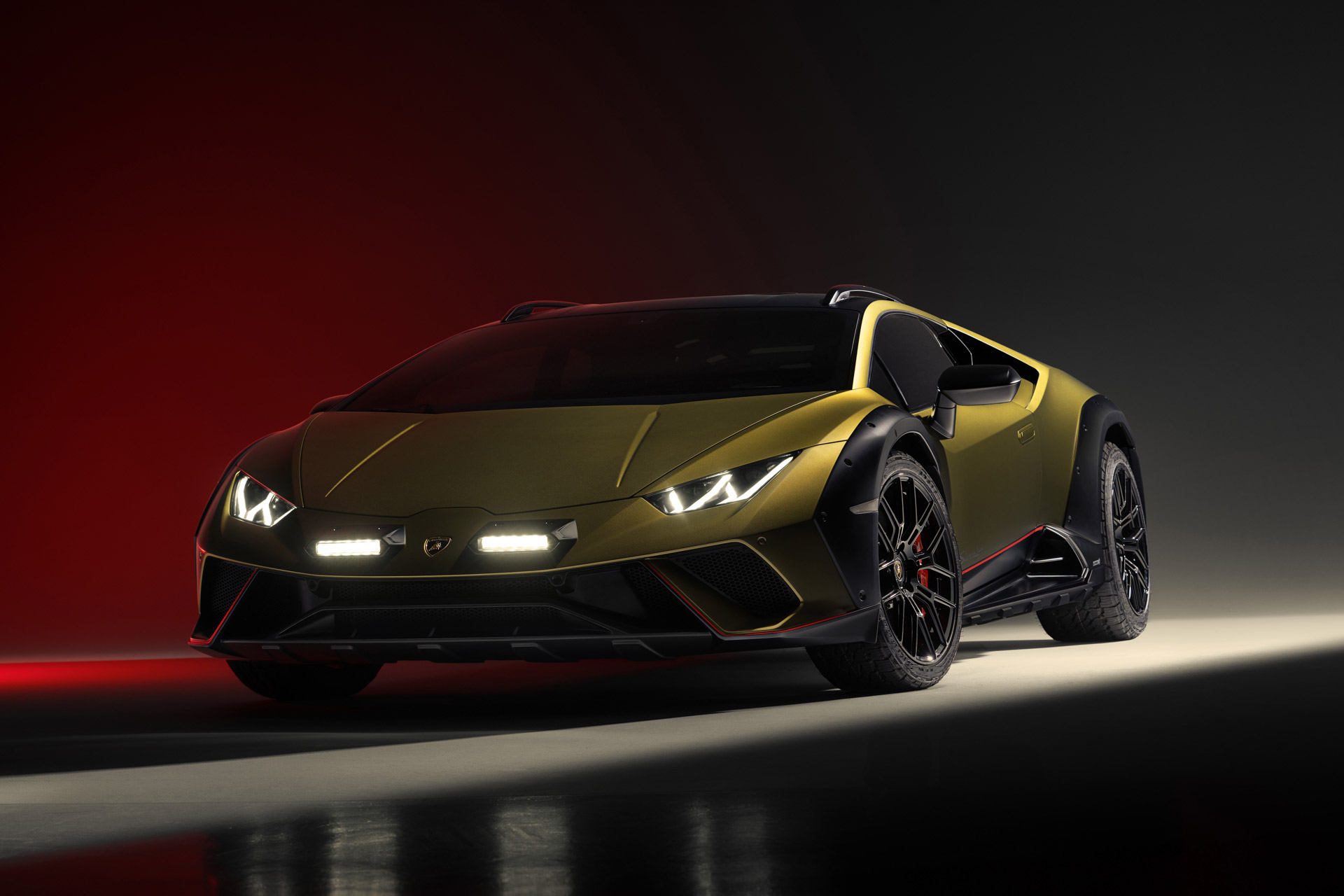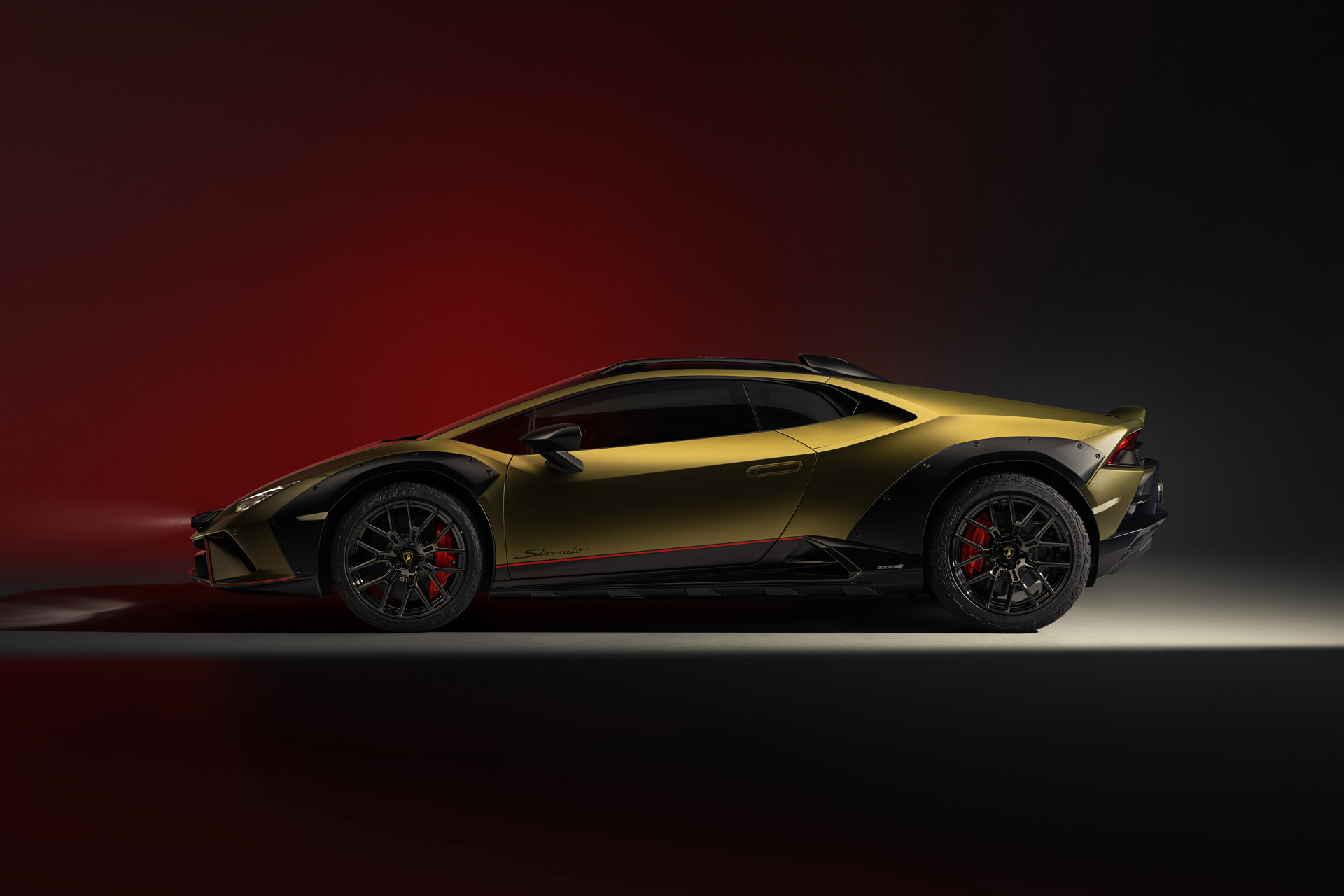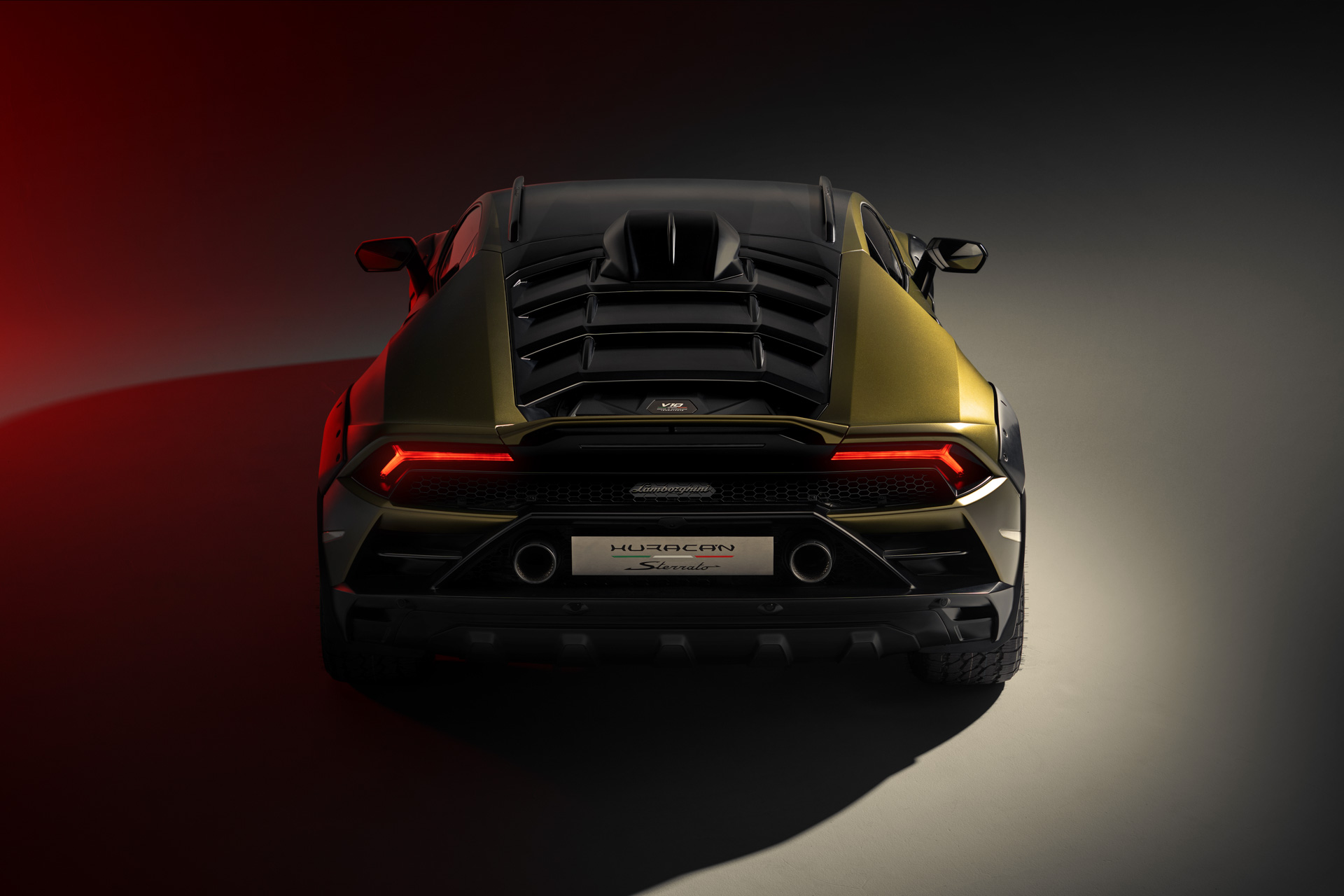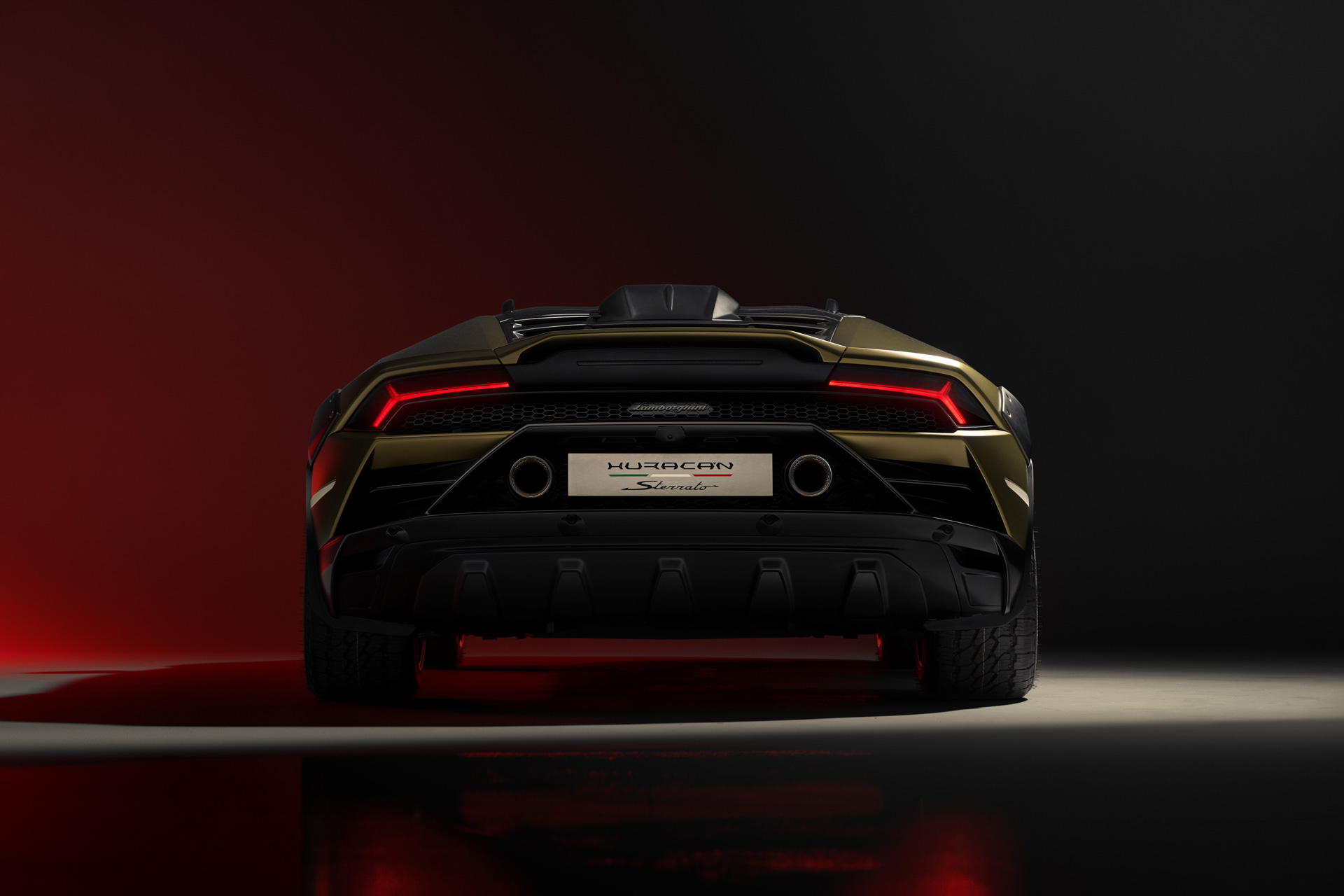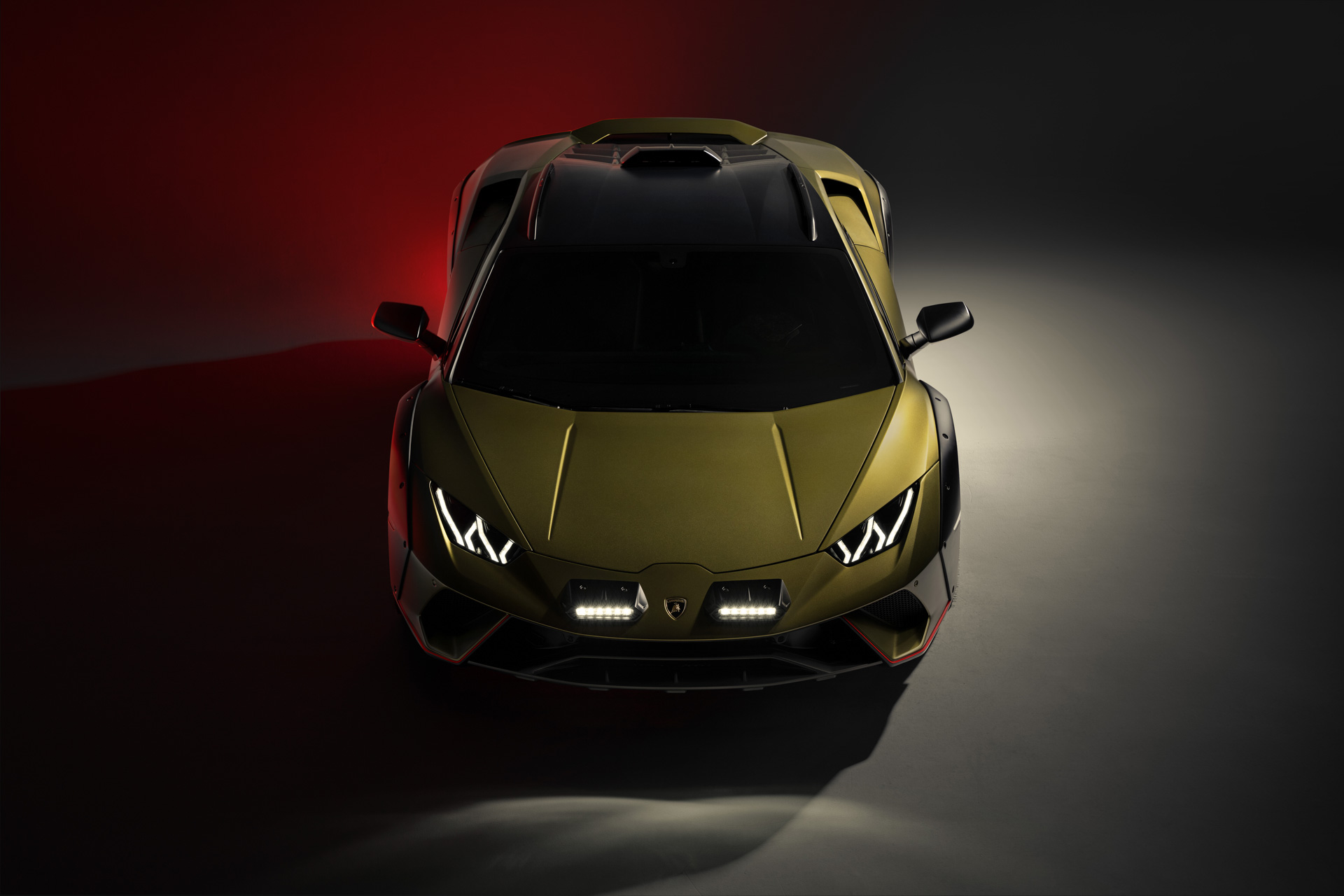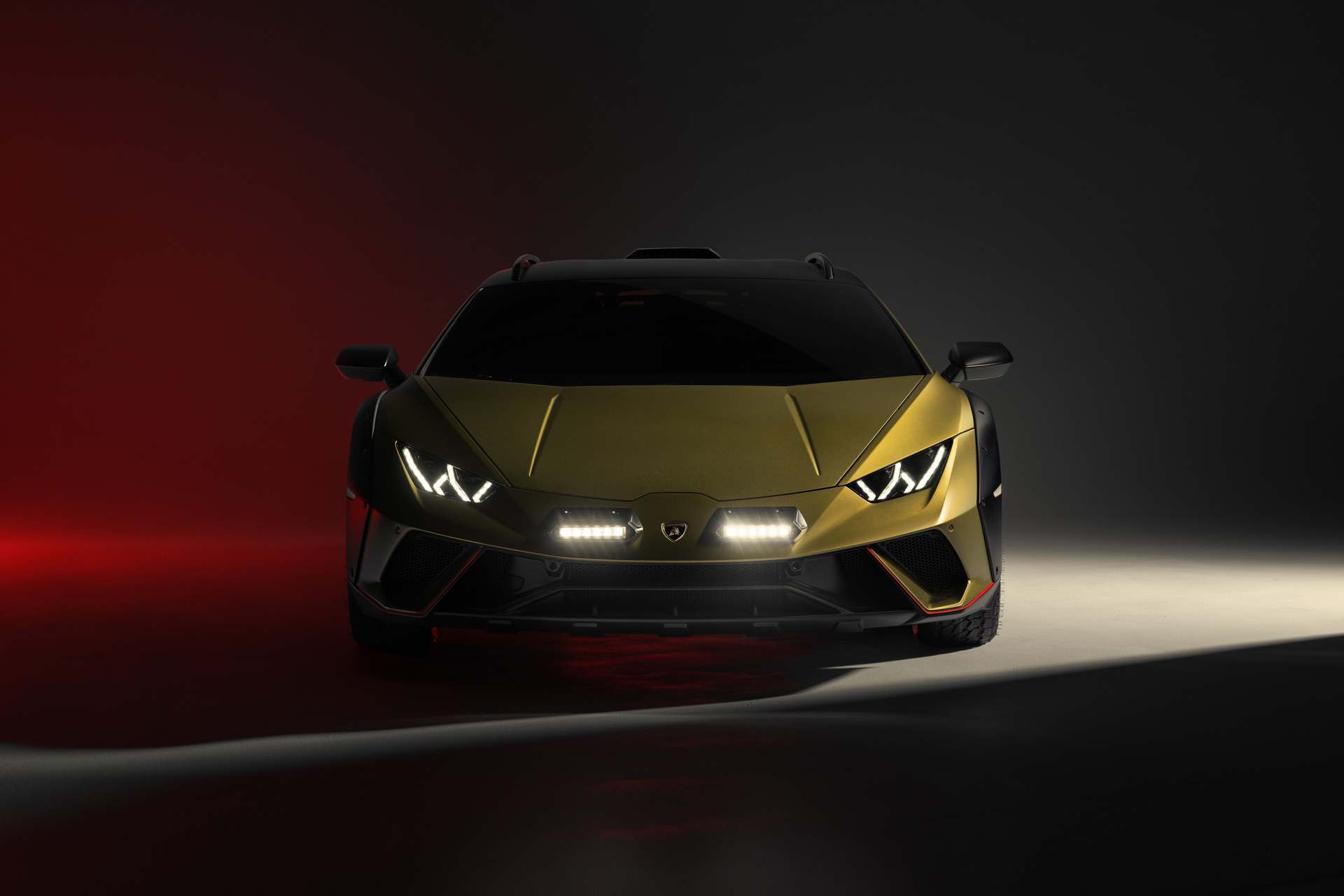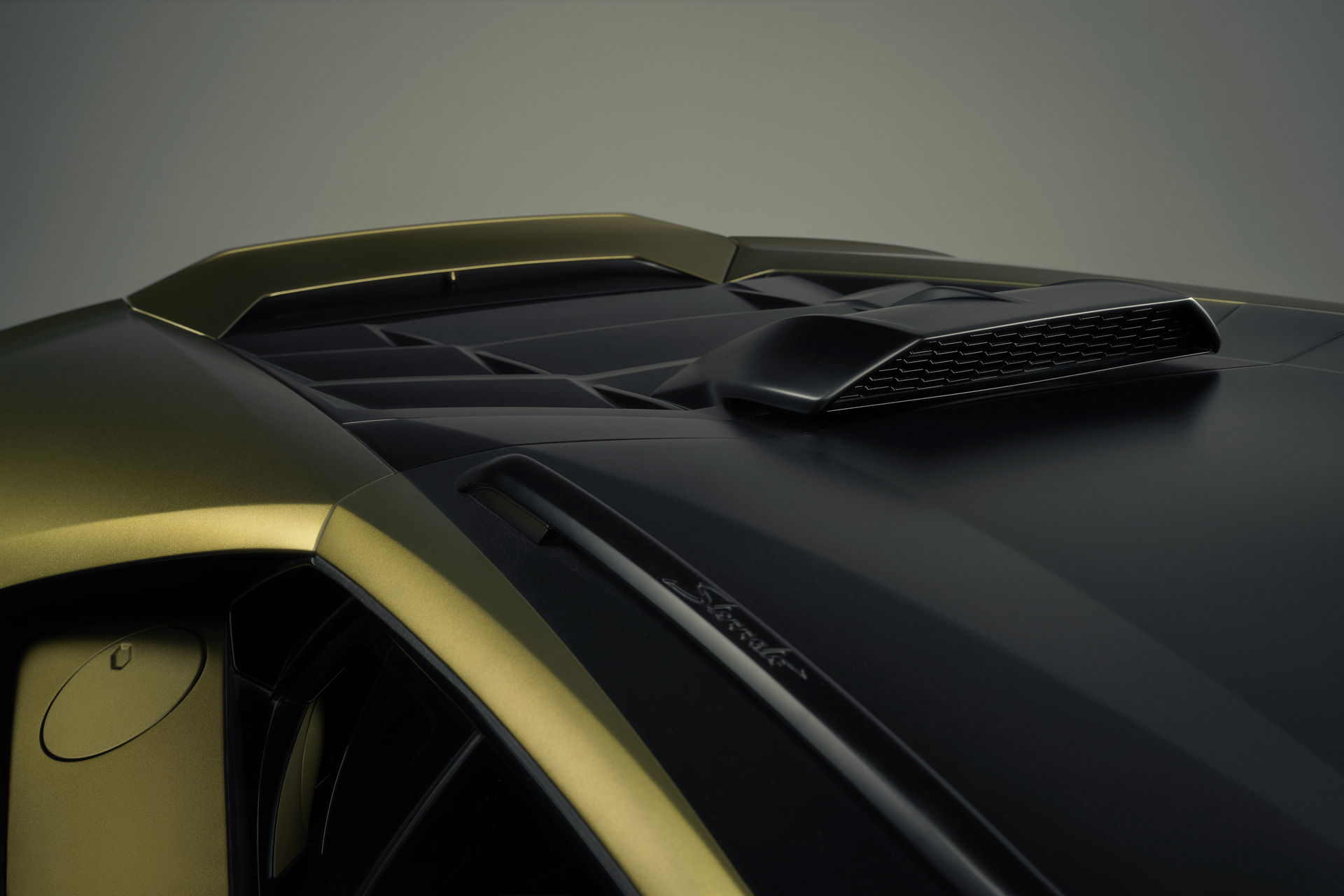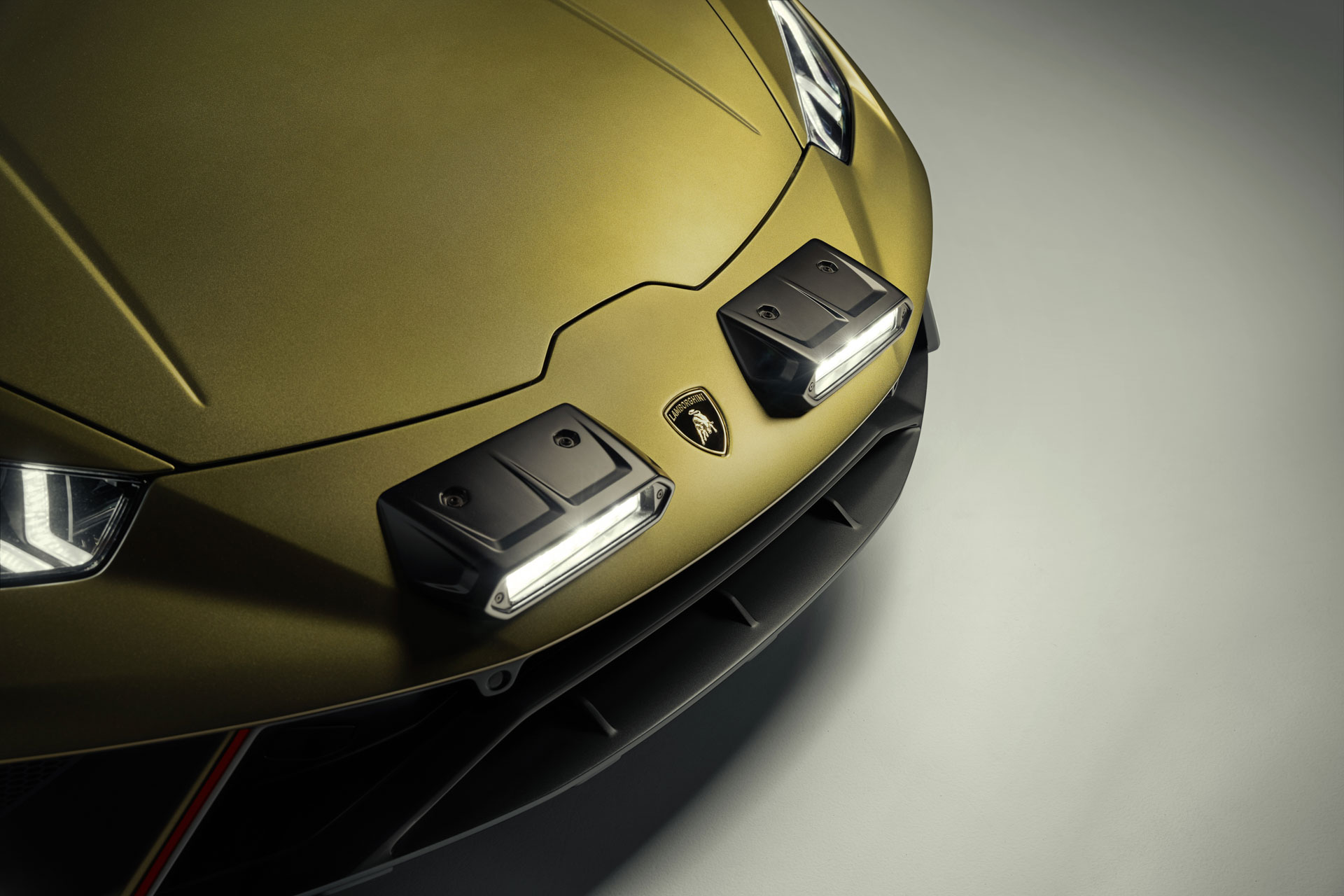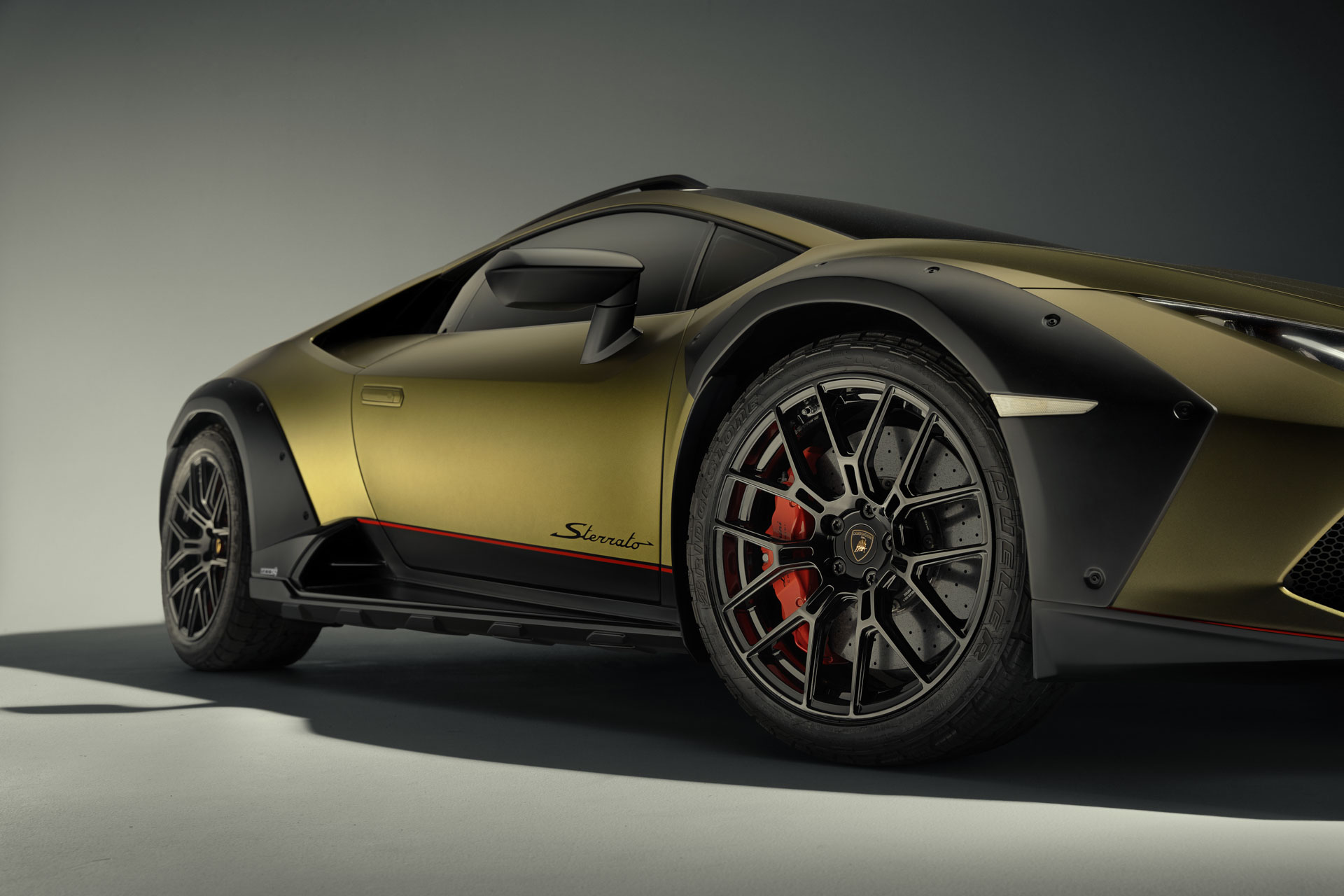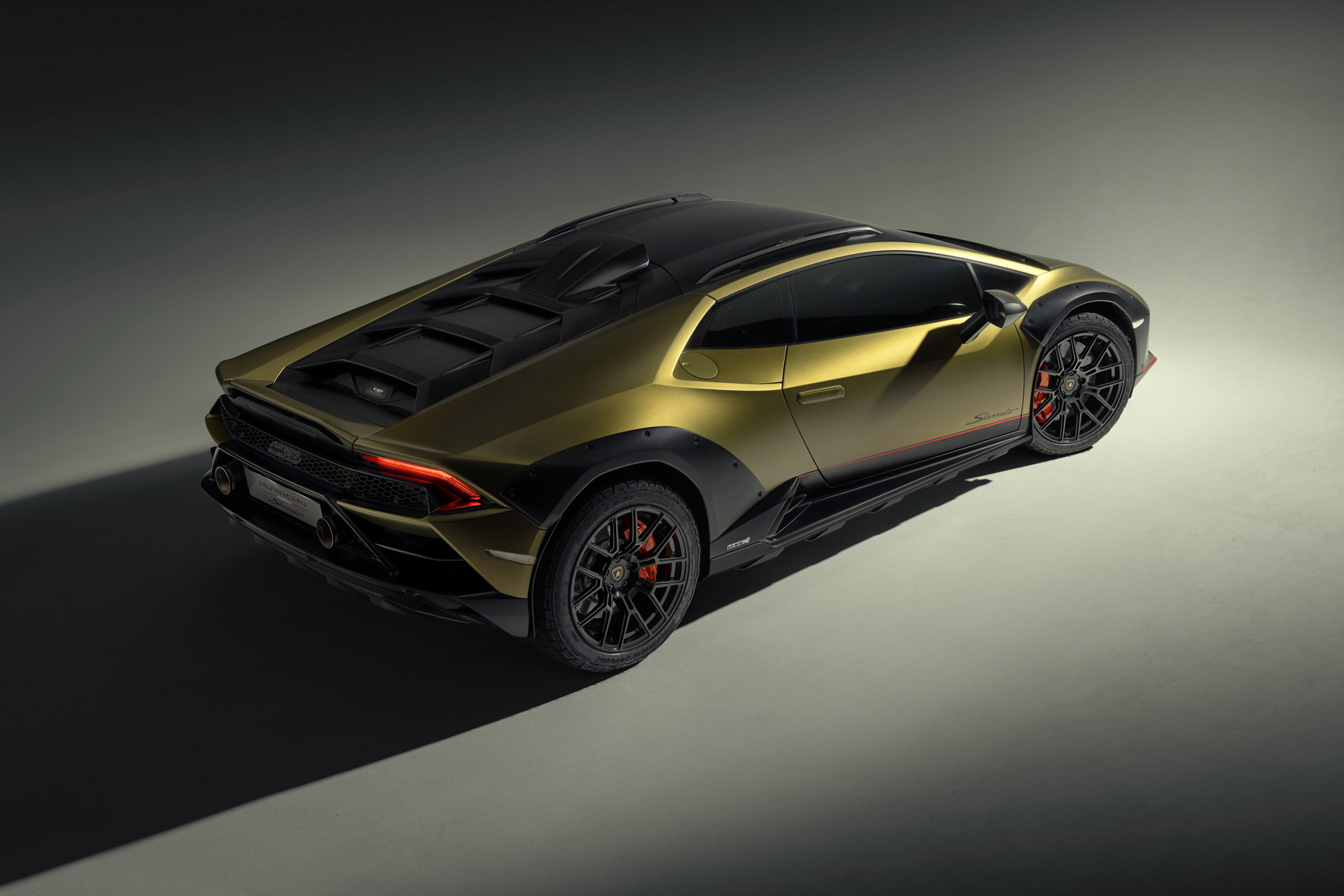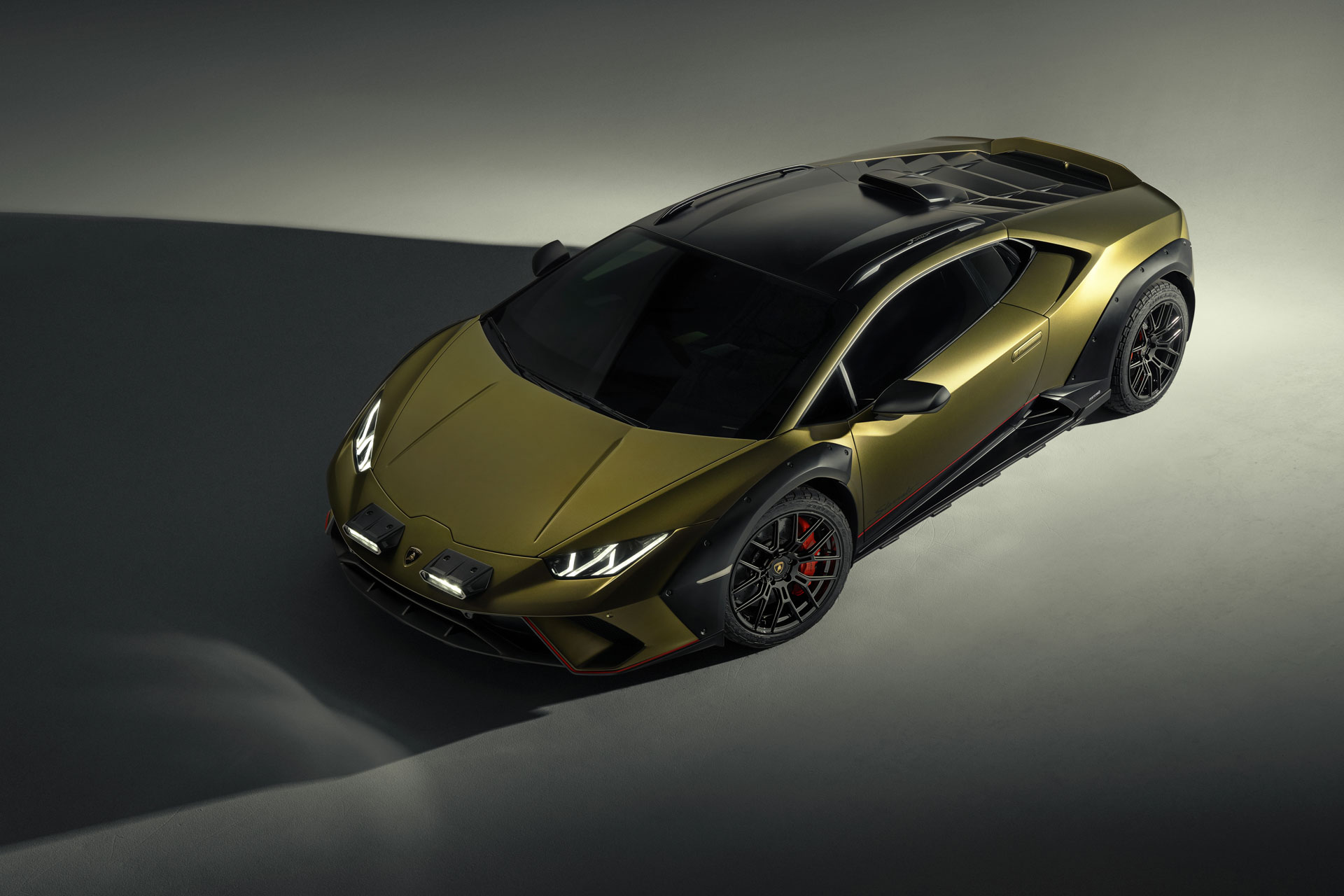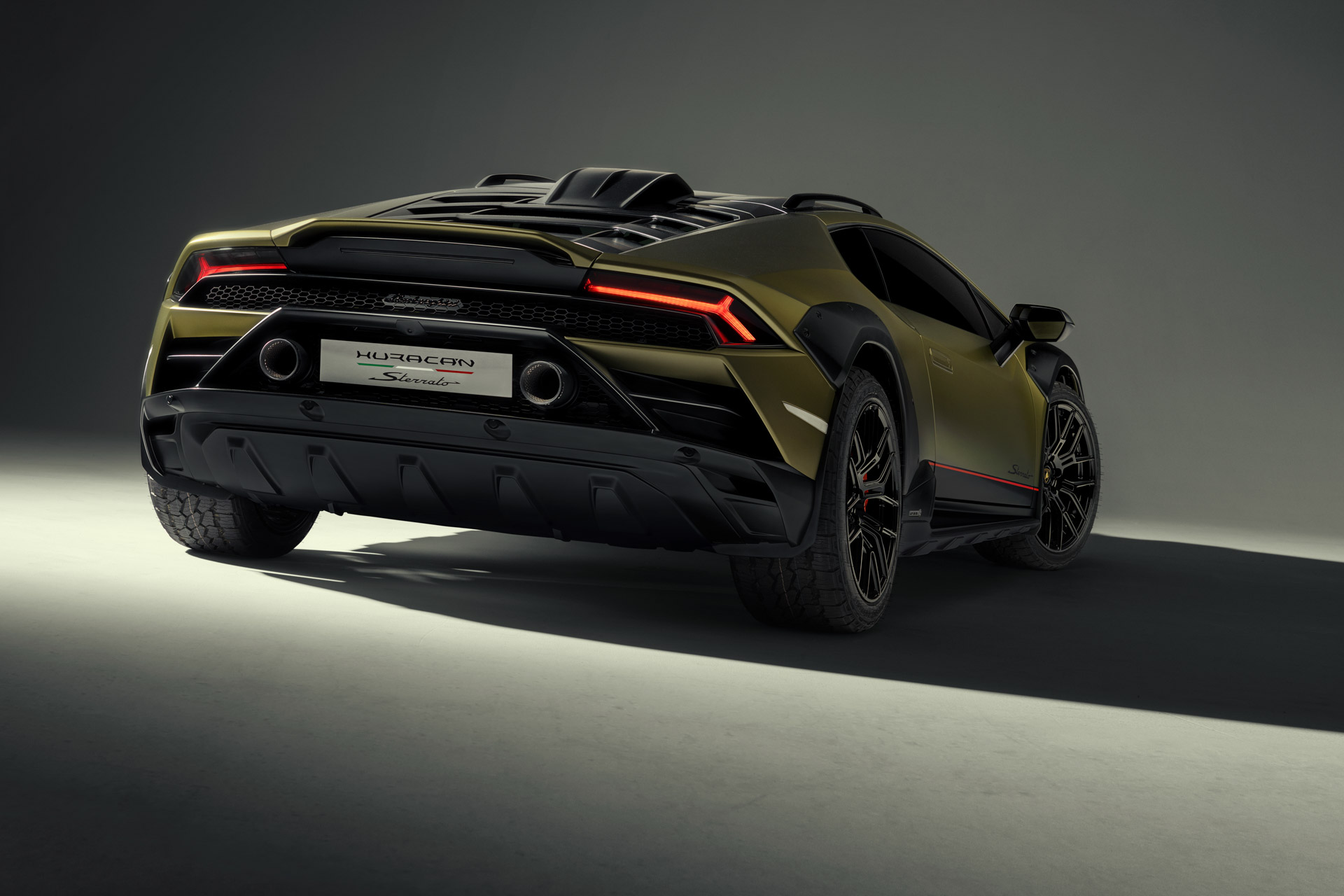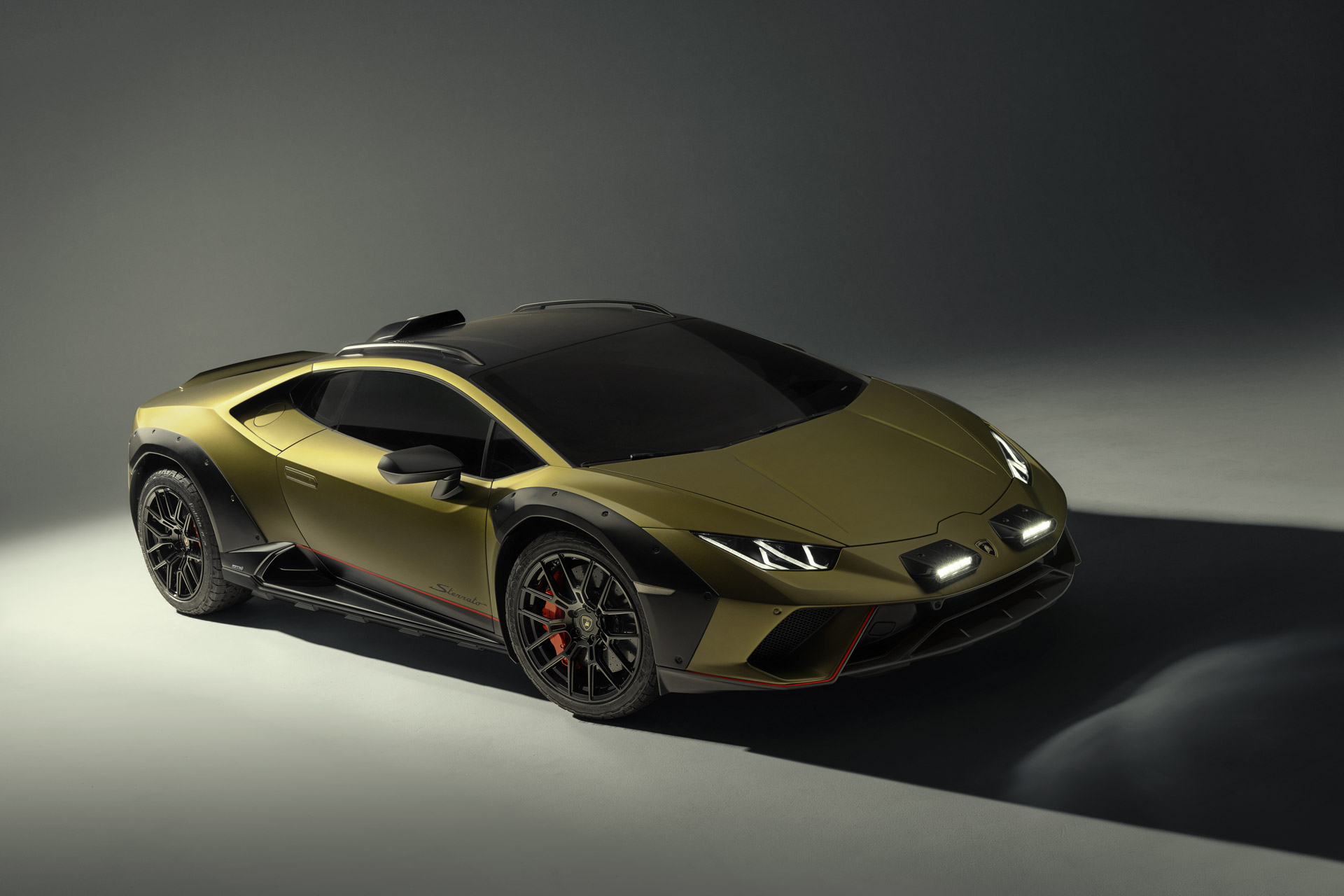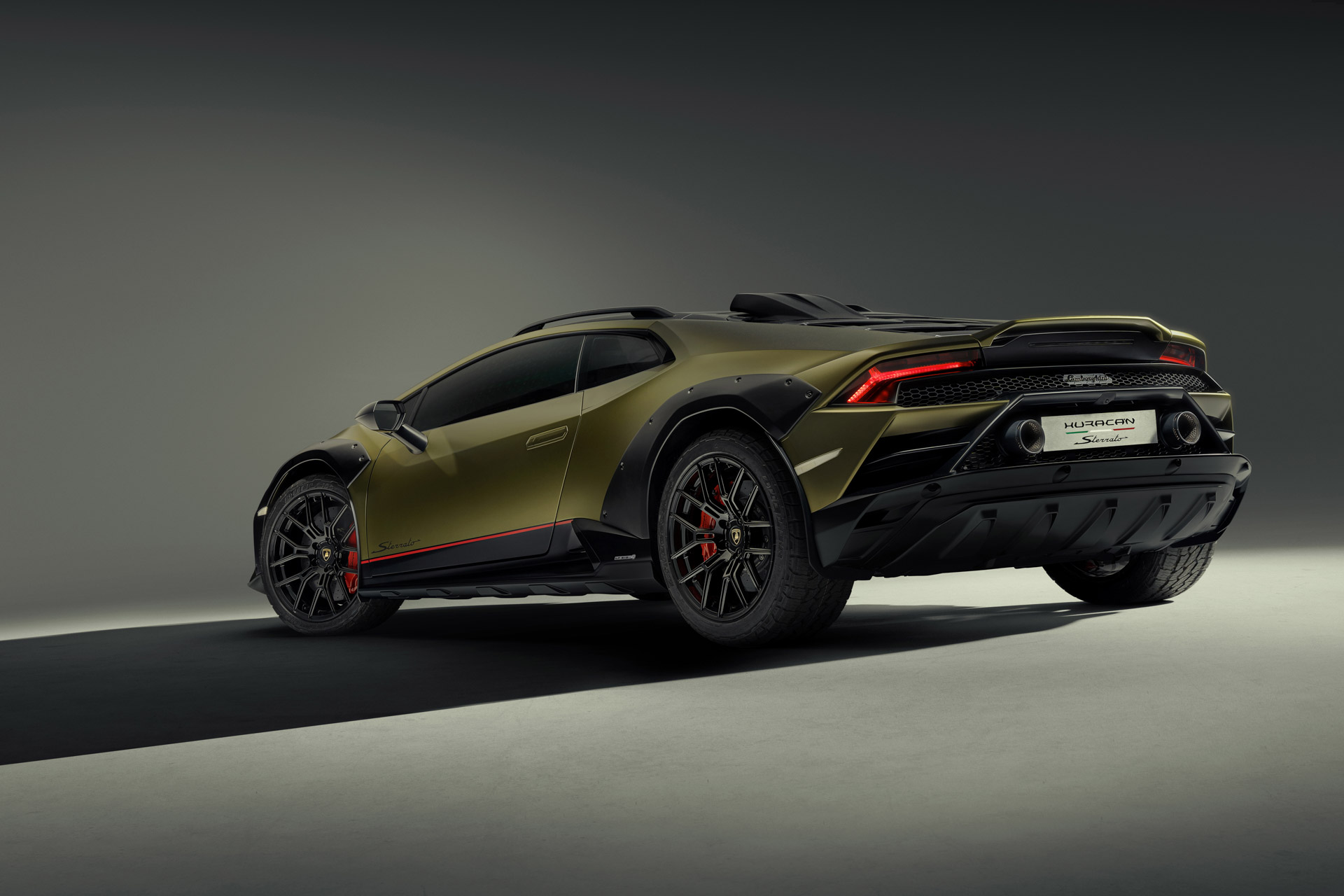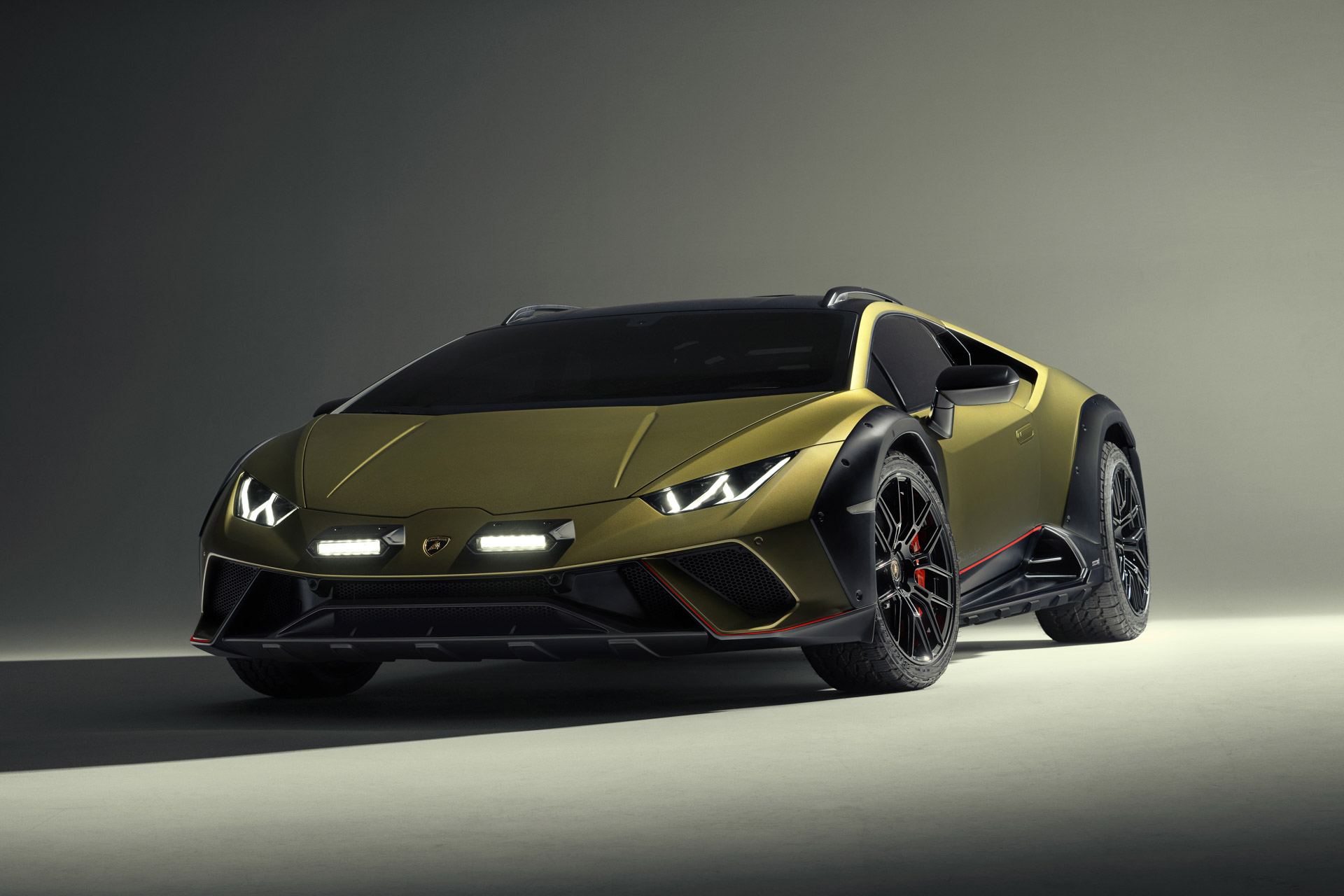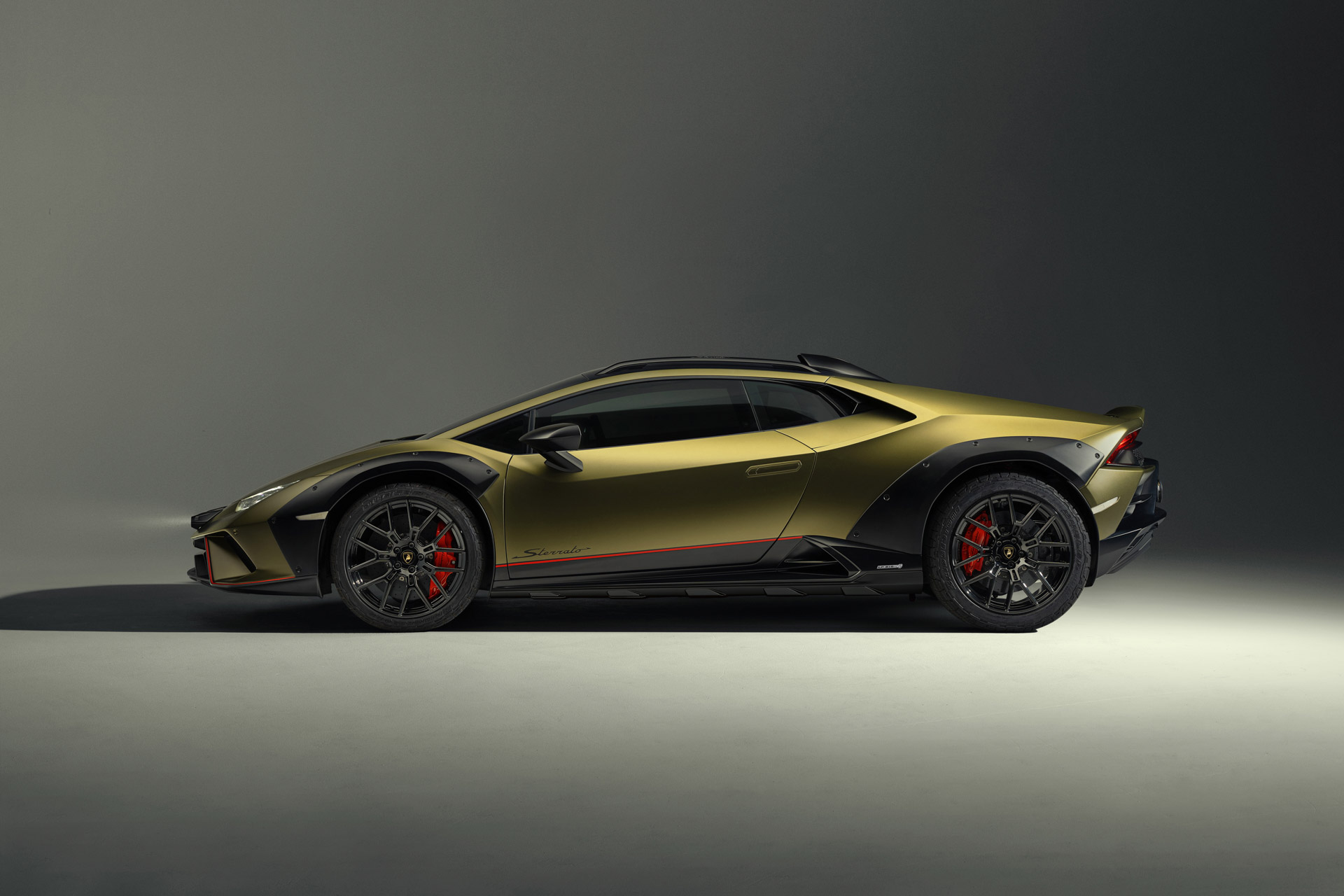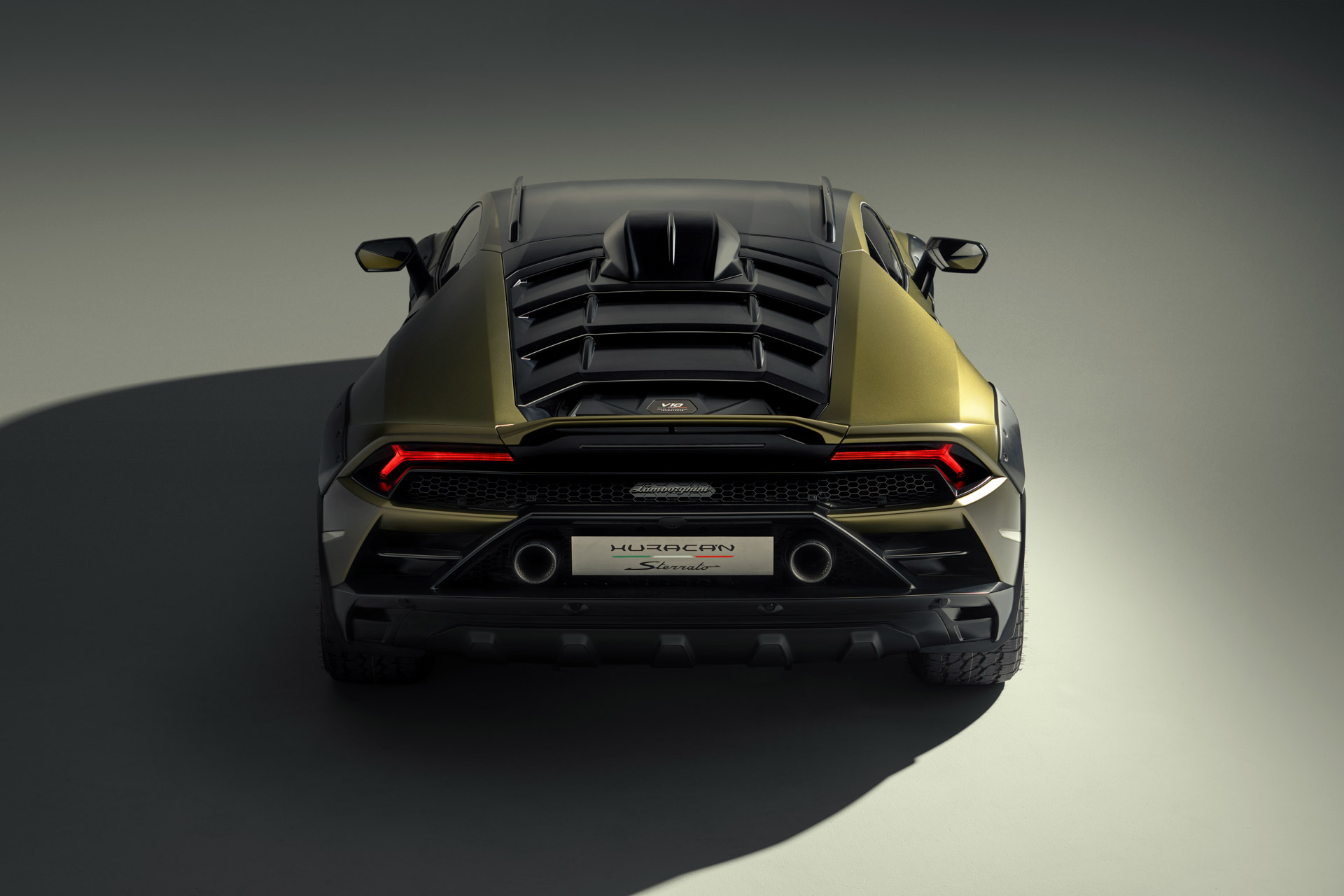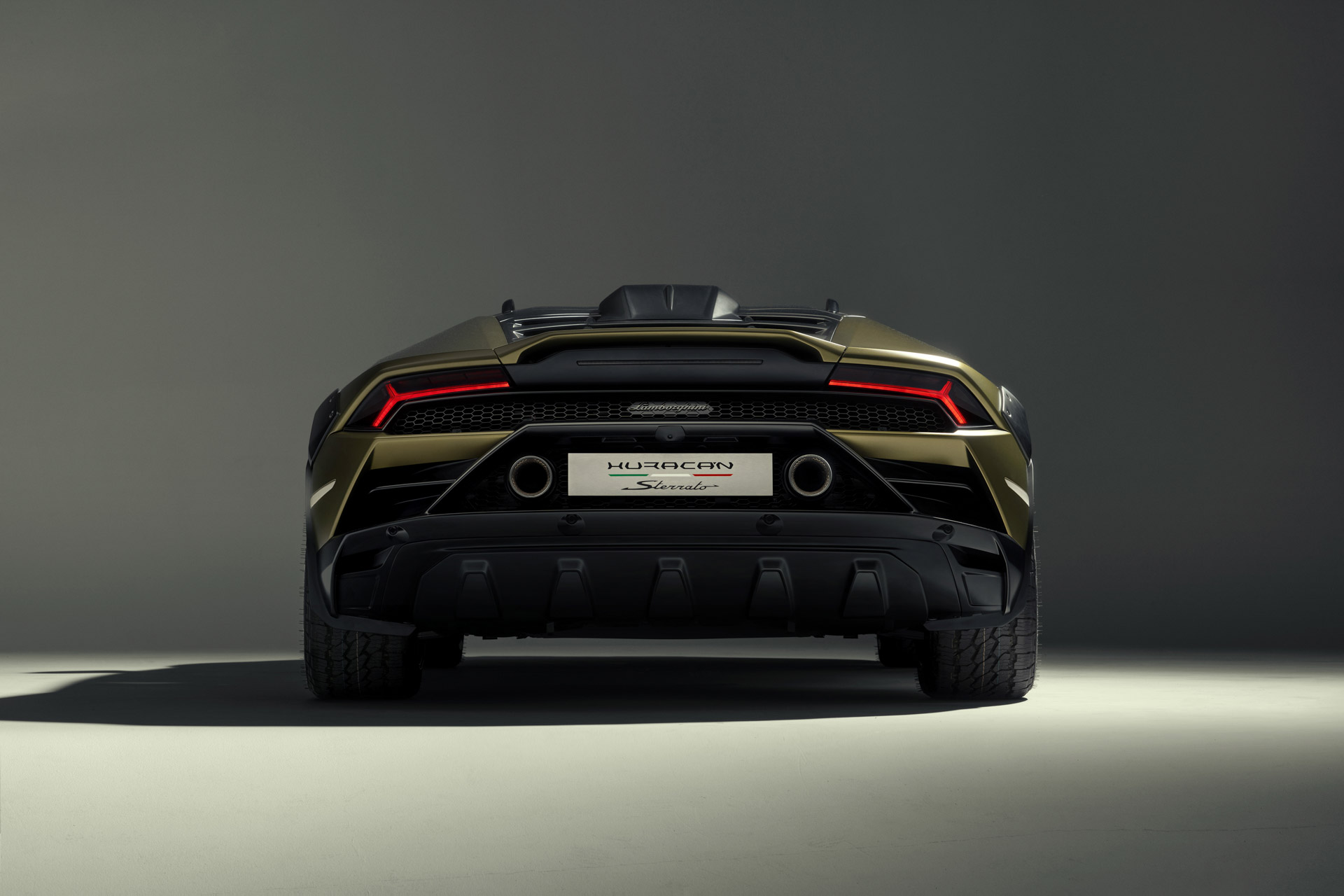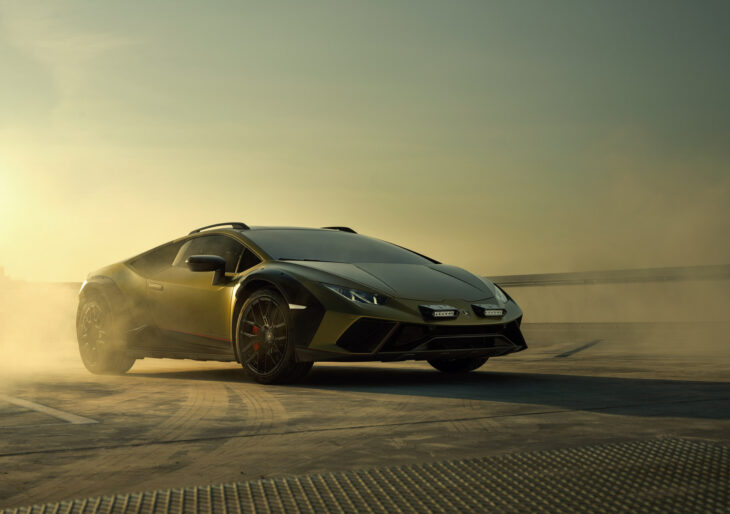When Lamborghini introduced the Urus, the automaker managed to neatly straddle concessions to popular tastes and its own history as a designer and builder of renegade, track-inspired exotic road cars. But even as the design language of the Urus represented the tension inherent in the company’s decision to move forward with it, Lambo did not allow the new model — which would surely be a company best-seller — to define it. Despite its sales power, it remains something of an oddball in the bull’s lineup.
Lamborghini’s concession to the other popular body style, the crossover, is an even more cryptic entry. The model is called the Sterrato, and it’s a Huracán variant. While the sublimated tension in the Urus gives it the look of an alpha ride of a really aggressive soccer mom, the Huracán Sterrato avoids that tension altogether. It really looks like a more muscular Huracán. Is it a crossover? If it is, why is it? What are the design elements of a crossover, according to Lamborghini?
Although a means of pegging the Sterrato might be founded in the way a crossover is imagined in Europe could naturally be distinguished from the way it’s imagined by Americans, perhaps ‘rally car’ would be a better overall classification than ‘crossover’. Because the AWD Sterrato is really a rally-inspired design…sort of. While retaining its brash urbanity, it rides higher than the Huracán, but not too much higher — an inch and three-quarters, actually, making it ideal for veldt roaming but certainly not rocky mountain ways — while flaring out more at the sides. At the end of the day, though, it still looks like a Huracán.
The proof of the pudding, in this case, is under the crust. An immediately evident concern about taking a $300K sports car off the pavement is the gravel flying around, and of course Lambo has incorporated underbody protection to head off such damage. Additionally, the Sterrato is about a third of an inch longer than the standard Huracán, and has an adaptive damper system that’s geared toward hill and dale. It rides on 19-inch wheels and comes with all-terrain tires.
As for the cabin feel and the engine, they transfer directly from the standard Huracán to the more specialized Sterrato; the car is powered by the Huracán’s V10 engine, which in this case produces 610 horsepower and 442 pound-feet of torque. The pilot-like driving aesthetic of four-point harness and carbon seats is complimented by aluminum floor mats, carbon vents, and the characteristic geometric shapes and evocations that help express the brand.
What’s the final word? For most drivers lucky enough to live in an area with terrain amenable to the Sterrato’s spirit, it’ll likely be blast! Which is only natural when one is giving a cross-terrain supercar fodder for its capabilities.
